Welcome to Good Market Info!
Click the logo to return to the Good Market app
Welcome to Good Market Info! Click the logo to return to the Good Market global app.

Welcome to the 41 social enterprises, cooperatives, responsible businesses, civic organizations, and networks that became Good Market approved in November 2021! This month’s roundup includes new community members from Uruguay, Brazil, Mexico, the United States, Canada, South Africa, Angola, Tanzania, Kenya, Nigeria, Togo, Egypt, Palestine, the United Kingdom, the Netherlands, India, Sri Lanka, and Australia. More than 2,136 enterprises across 73 countries are now part of the Good Market commons.
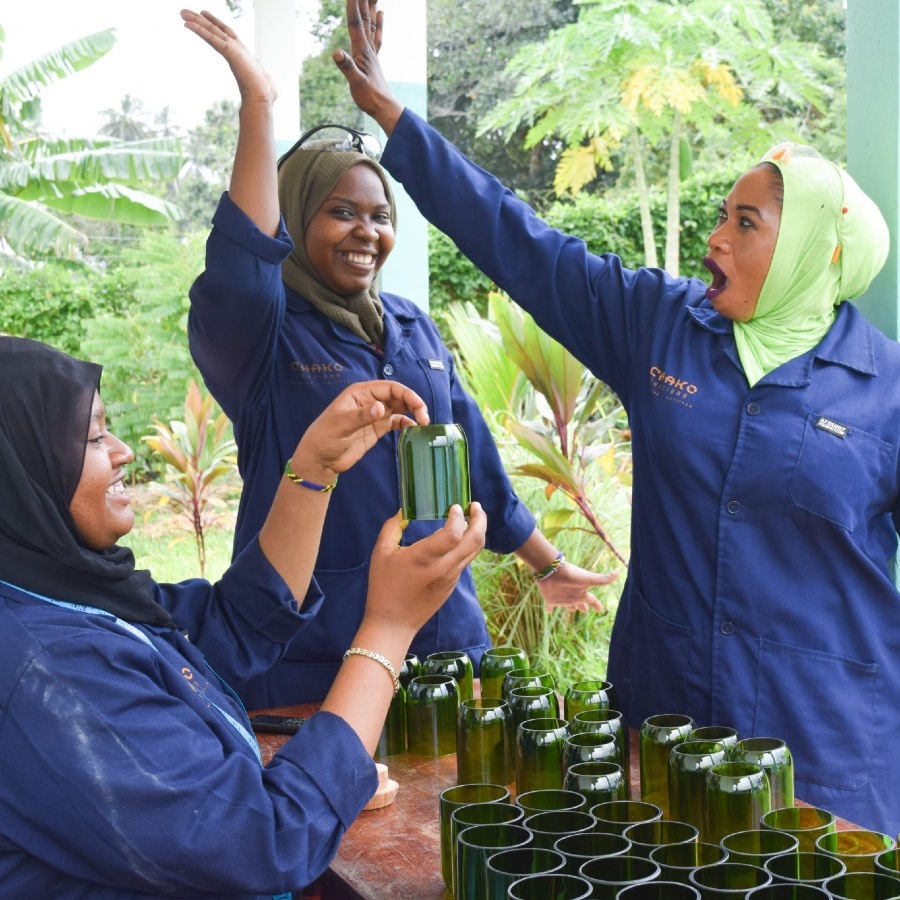
CHAKO aims to protect Zanzibar’s environment, empower local women, and increase economic opportunity by enabling artisan craft producers to expand their product ranges and connect with broader markets. The tourism industry creates opportunities for people in Zanzibar, but it also generates waste that is difficult to process on the island. CHAKO started by collecting empty glass bottles from hotels and restaurants and upcycling them into modern tableware, containers, lighting fixtures, and more. Over the years, they have expanded to new waste materials, new products, and new markets around the world. Through design thinking workshops, artisan craft workers learn by doing and create new solutions for waste. The team has developed a human-powered bike shredder for plastic and beach bags made from old rice sacks and dhow sails. CHAKO particularly focuses on training, employment, and wellness opportunities for women and encourages them to be creative and find their strength and power. CHAKO Zanzibar is a guaranteed member of the World Fair Trade Organization (WFTO).
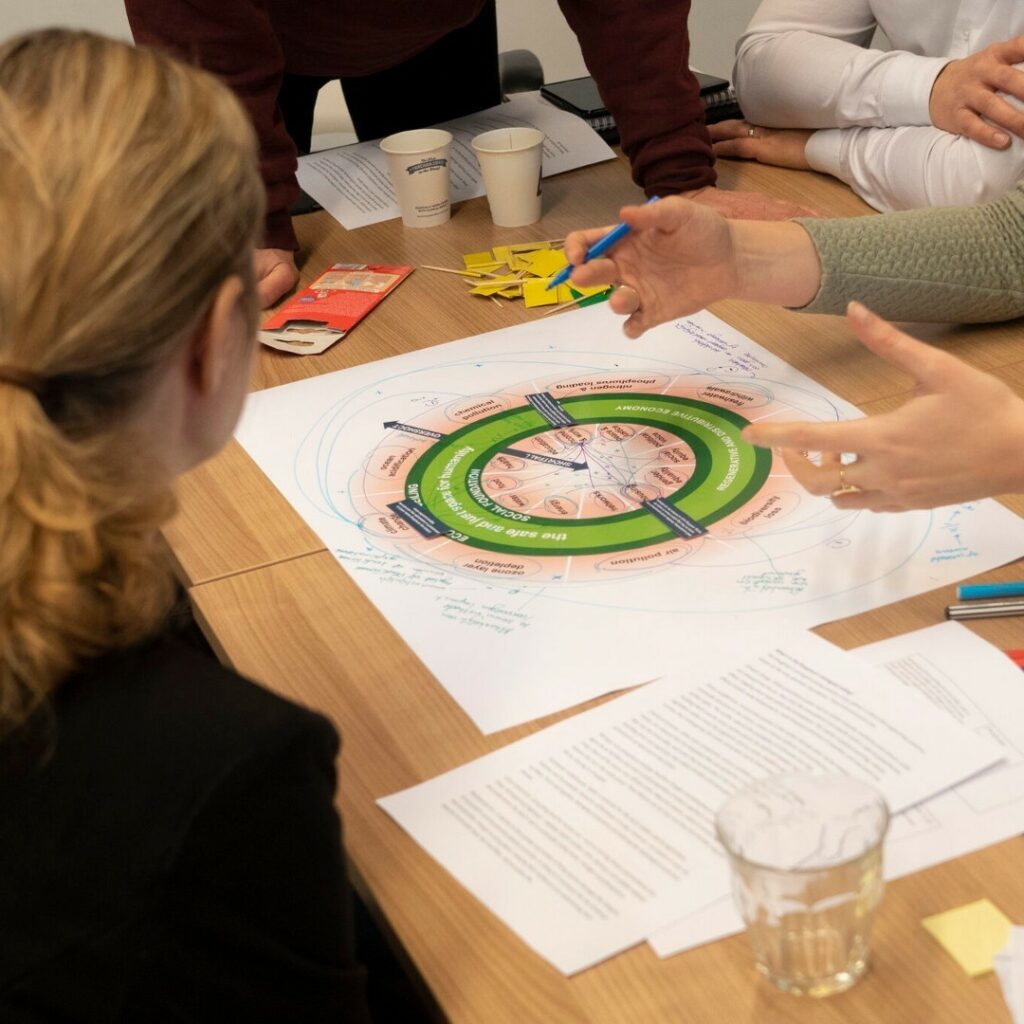
Oxford, England, United Kingdom
Doughnut Economics Action Lab (DEAL) is part of the emerging global movement of new economic thinking and doing. They help create 21st century economies that are regenerative and distributive by design so we can meet the needs of all people within the means of the living planet. As an action lab, they aim to learn with and from changemakers around the world who are turning the ideas of Doughnut Economics into transformative action. In 2020, they launched the DEAL Community Platform as a space to connect, share, inspire, and be inspired. It includes a community map, member profiles, tools, stories, events, news, and other updates. The DEAL team is collaborating with cities, communities, educators, businesses, and governments on pilot projects around the world. The tools and stories that emerge from these initiatives are open access and free of charge. DEAL is a member of the Wellbeing Economy Alliance. They are registered as a Community Interest Company and reinvest all revenue towards their purpose.
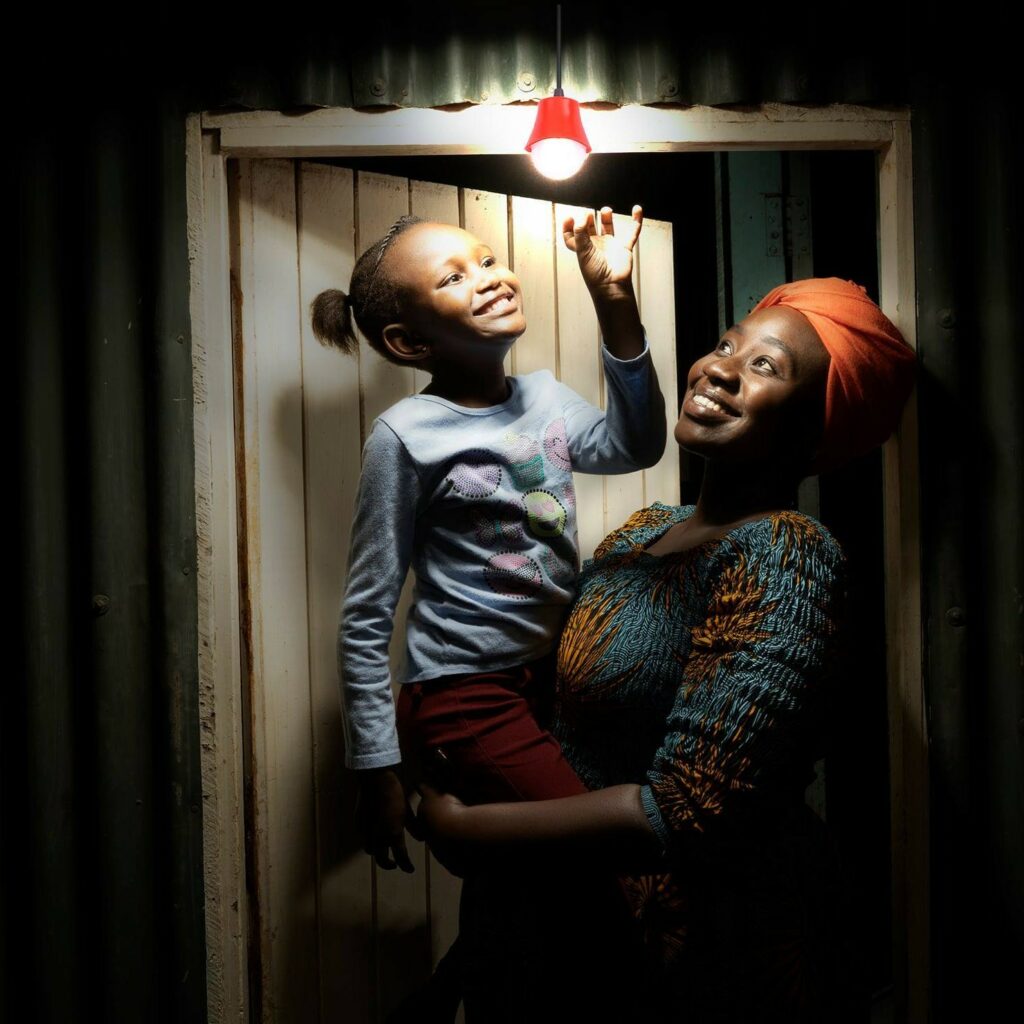
d.light aims to create a brighter future by making clean energy products universally accessible and affordable. They focus on delivering distributed solar solutions to people who lack access to reliable energy. Through hubs in Africa, China, South Asia and the United States, d.light has sold more than 20 million solar lanterns, appliances, and home systems, improving the lives of over 100 million people across 70 countries. Their impact strategy is based on theories of change across four areas of well-being: financial freedom, productivity gains, human health, and environmental health. d.light products are water-resistant, weatherproof, built for durability, supported through a network of rural service providers, and covered by a 2-year warranty. They work with local partners to develop e-waste collection and incentive systems. Profits are used to expand impact and provide free solar systems for refugee camps and off-grid health facilities. d.light is a certified B Corp.
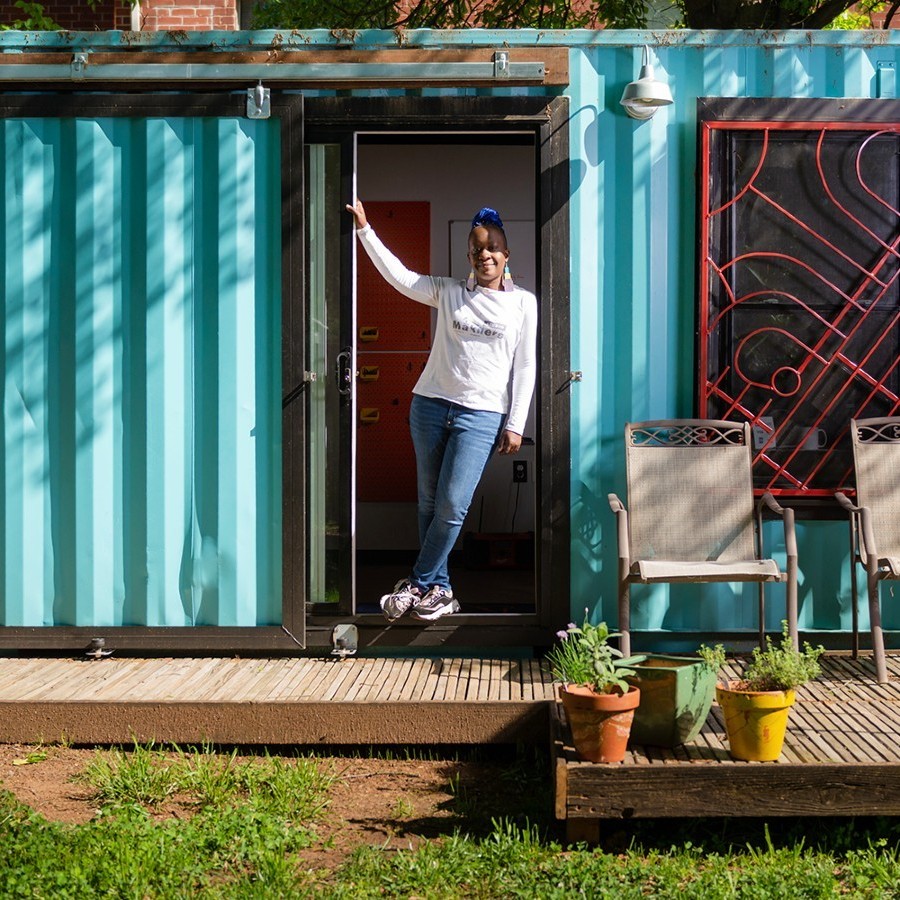
Atlanta, Georgia, United States
Mākhers Studio is a green manufacturing and design-build firm that specializes in unique modular spaces that transform how we build community, employ locally, and make meaningful connections. They use recycled shipping containers to create Plug-In Pods for residential, commercial, and community use, including affordable housing, offices, workshops, cafes, retail outlets, medical clinics, pop-up classrooms, community centers, and more. The Mākhers Studio team works with communities on creative engagement and real estate strategies that advance practical, citizen-led solutions and activate neighborhood spaces to unlock local economic potential and create generational wealth. Investment is being used to develop and scale Factories-In-A-Box, micro manufacturing centers that enable new communities to design, build, and deploy Plug-In Pods. Mākhers Studio is committed to sustainable construction practices and an inclusive workforce.
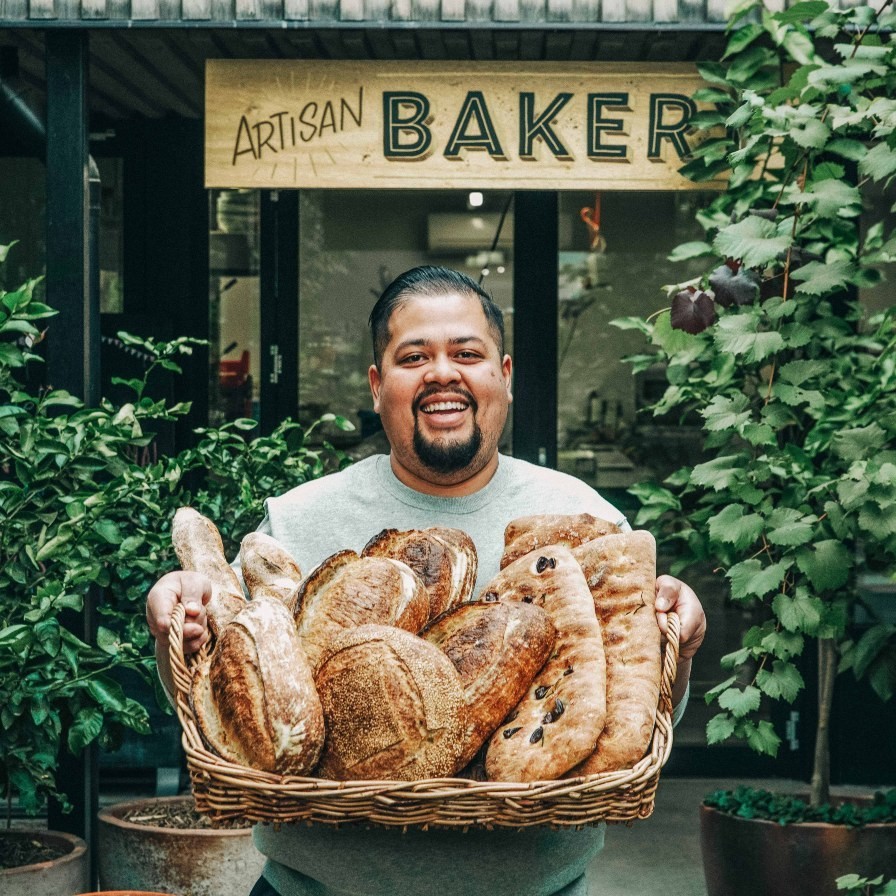
Collingwood, Victoria, Australia
STREAT is a food system social enterprise dedicated to helping young people and the planet. Their Melbourne cafes, coffee roastery, bakery, kitchen, catering service, and garden provide homeless and disadvantaged young people with life skills, training, work experience, pathways to long-term employment, and a sense of connection, safety and belonging. STREAT’s food is handmade fresh daily with no additives or preservatives. They prioritize local suppliers and sustainably sourced ingredients, minimize waste, use renewable energy, maintain a worm farm, and produce compost for their own garden. STREAT is part of Moving Feast, a long-term collaborative project to build a fairer, healthier and more regenerative food system for Victoria. Through Moving Feast, they are expanding into new training and employment pathways for young people with a focus on urban farming and other green jobs. STREAT is registered as a not-for-profit organization and reinvests all surplus towards their mission.
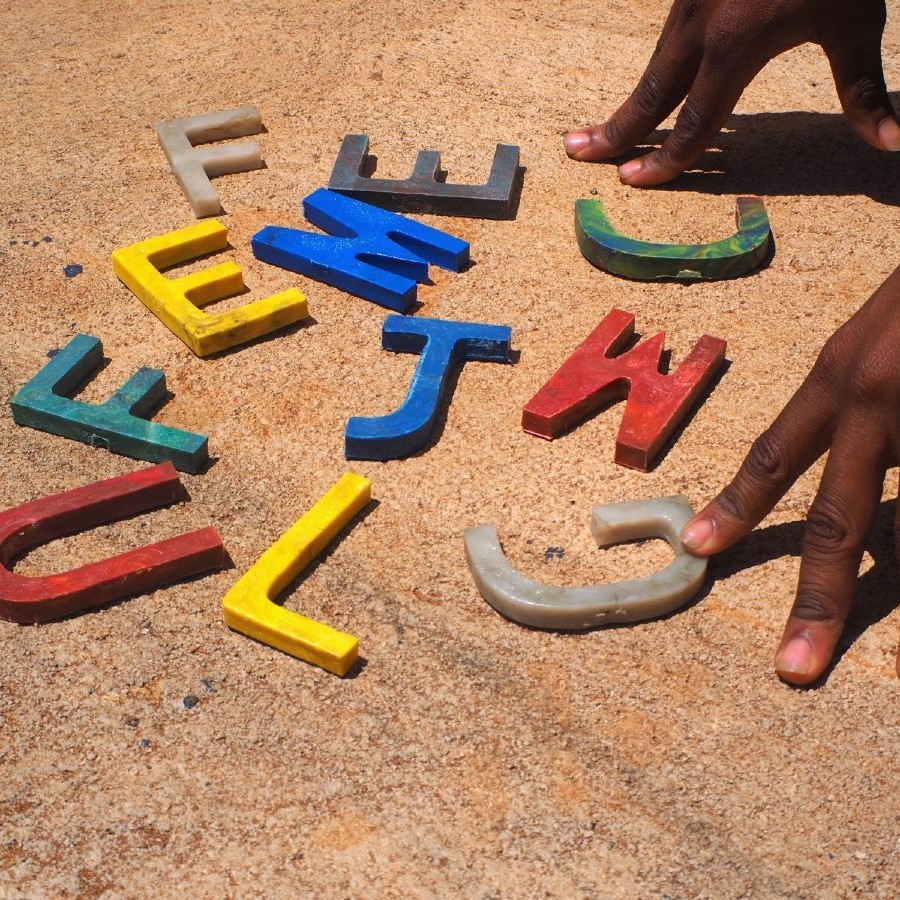
Njombe Beyond is an initiative started by the Southern Highlands Participatory Organisation (SHIPO) to reduce waste and recycle plastic in Njombe town. Since 2000, the import of plastic and synthetic rubber to Tanzania has increased by 400 percent. More than 1,000 tons of plastic arrive at the Njombe dumpsite each year, and because the nearest recycling facility for shredded plastic is more than 700 kilometers away, it is not economically viable to transport plastic for recycling. Njombe Beyond uses open source designs from the Precious Plastic movement and locally available materials to build small scale recycling machines and create recycled plastic products for the local market. They have developed alphabet letters and learning materials for children, protective face shields, furniture, tiles, and other products with local demand. Njombe Beyond organizes community clean ups, school programs, and local environmental events to raise awareness about waste reduction and plastic solutions. They donate to Precious Plastic to support the global movement.
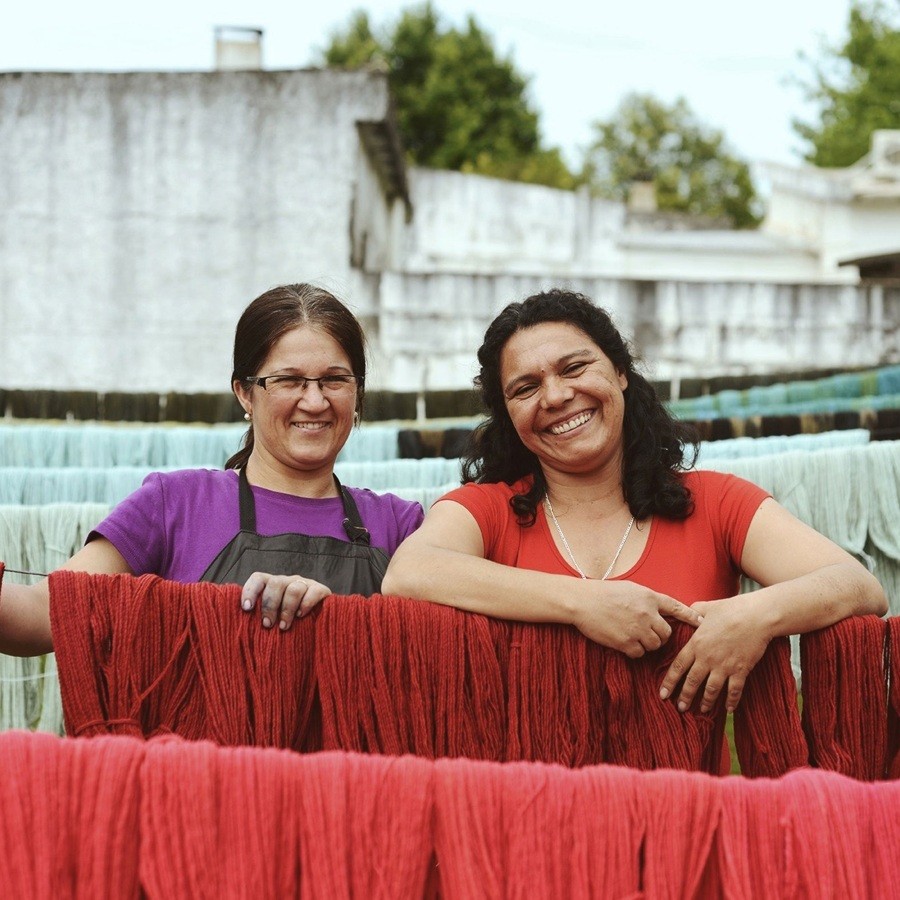
Manos del Uruguay was founded in 1968 by five friends to create work for rural women in Uruguay that would provide income, greater independence, and opportunities for personal development, while celebrating and maintaining their traditions and enabling them to stay close to their families and communities. Today, they specialize in Uruguayan wool clothing, accessories, housewares, and yarns for the local market and for international brands and designers like Ralph Lauren, Stella McCartney, and Coach. The wool is sustainably sourced and spun, dyed, knit, and woven by hand. Manos del Uruguay is organized in 12 rural cooperatives and owned by the artisans. A service center in Montevideo coordinates product design, material and equipment supply, technical training, sales, financing, and courses related to production control and cooperative management. Artisans are able to work from their places of origin without having to emigrate to the capital. Manos del Uruguay is a guaranteed member of the World Fair Trade Organization (WFTO).
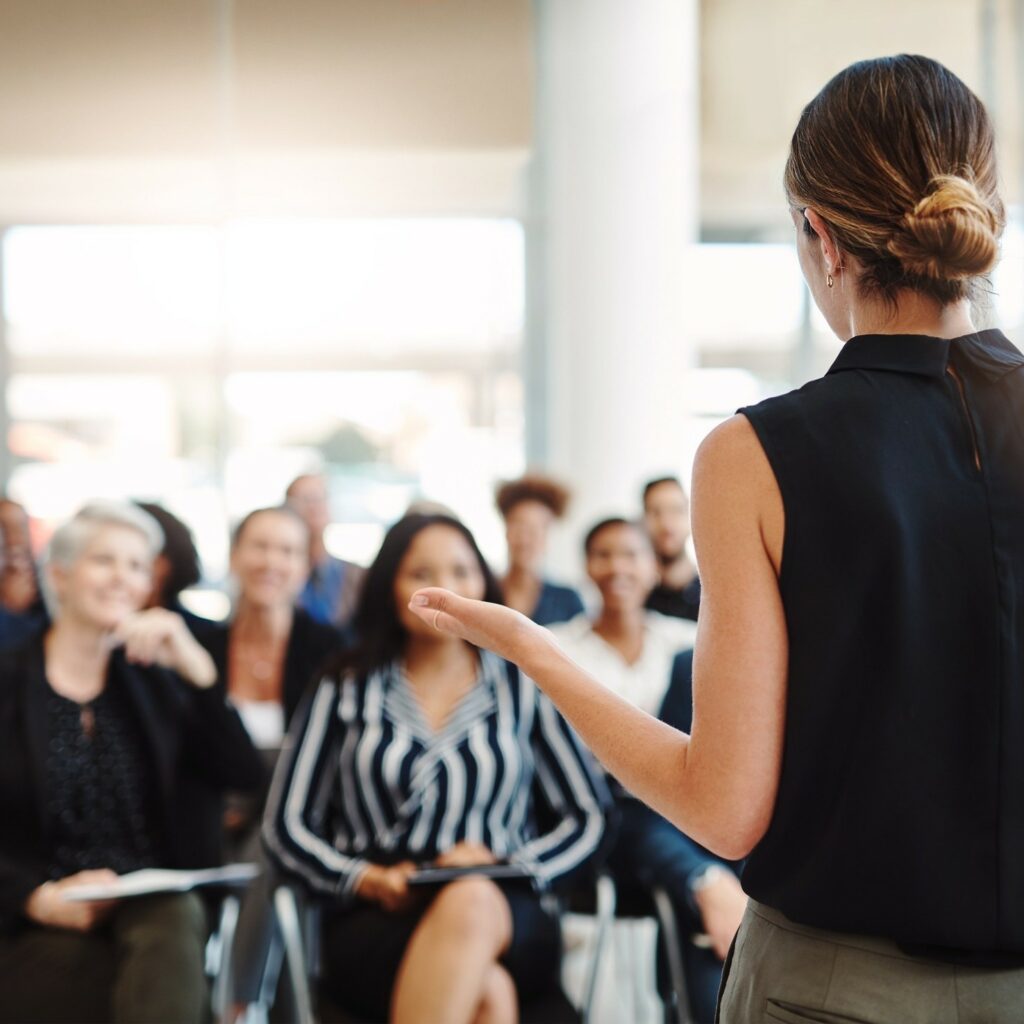
Vancouver, British Columbia, Canada
Buy Social Canada brings together purpose driven purchasers and social value suppliers to build business relationships that generate social benefits for communities across Canada. By enabling people to buy and sell with impact, they are creating a social value marketplace and unleashing the transformative power of the market. Buy Social Canada offers social enterprise certification, social purchasing partnerships, social procurement consulting, webinars and training services, national and regional engagement opportunities, and online resources on social enterprise, social procurement, community benefit agreements, and the social value marketplace. They also maintain directories of certified social enterprises, social purchasing partners, and community champions in Canada. Buy Social Canada is a certified Living Wage Employer in British Columbia and Ontario.
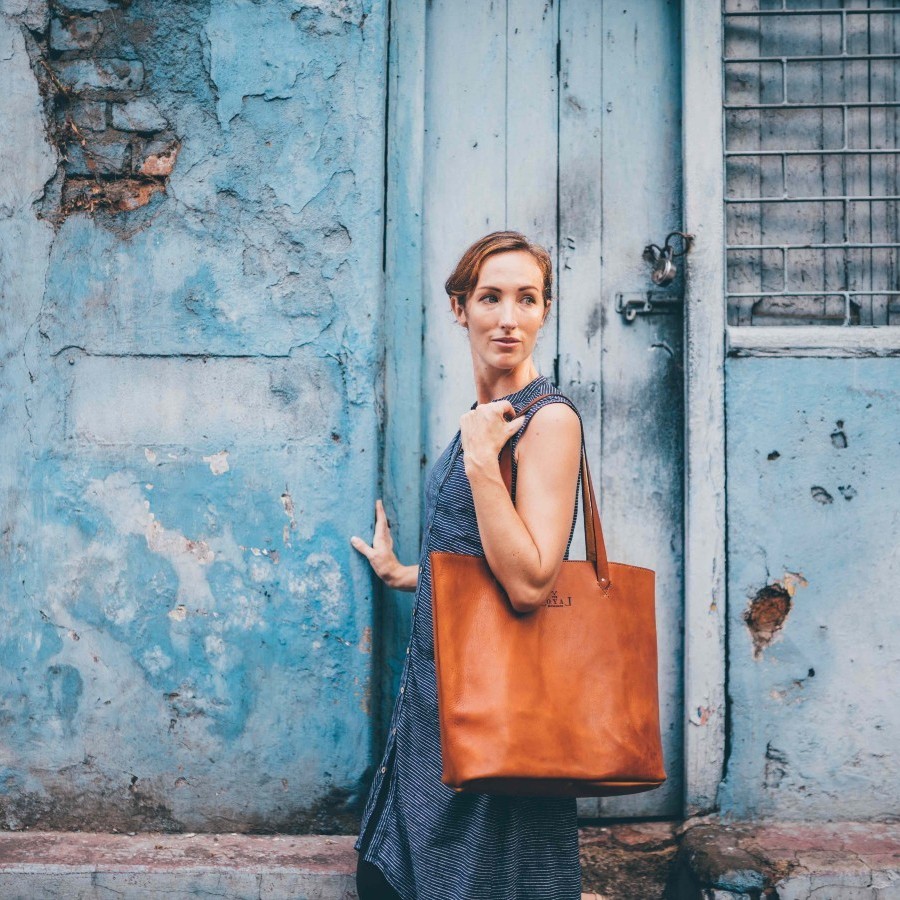
The Loyal Workshop creates fair trade leather satchels, bags, wallets, and belts and offers alternative employment to women trapped in Kolkata’s sex trade. Products are hand-stitched, made from sustainably sourced vegetable tanned leather, and designed for durability. All profits are reinvested into the business to employ more women who want to leave the sex trade. The Loyal Workshop partners with local community organizations like Humari Muskan, participates in the Freedom Business Alliance, and is a guaranteed member of the World Fair Trade Organization (WFTO).
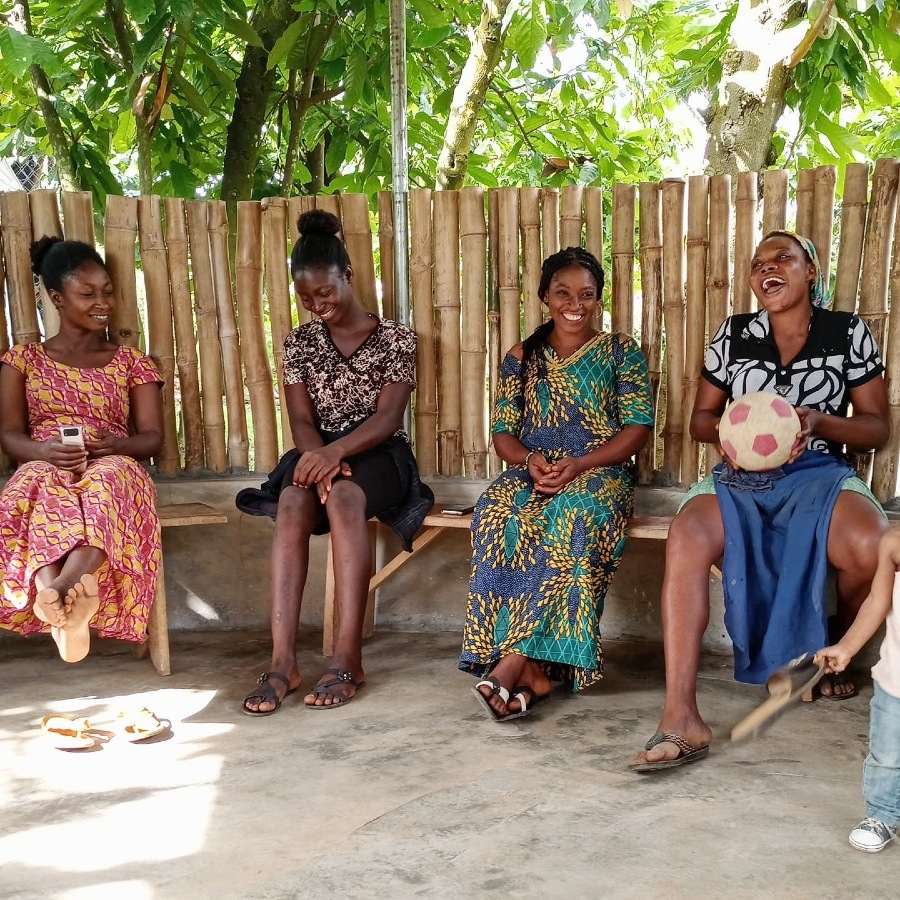
Durian empowers women in rural communities to become self-sufficient by providing them with the knowledge and skills to transform local waste materials into livelihood opportunities. At the Durian Craft Village in Imafon, women learn to make jewelry, furniture, and other crafts from bamboo, skin care products form cocoa pod husks, and upcycled fashion from waste fabric. The women also maintain a bamboo nursery, develop home gardens, and operate a cassava chip processing unit. They aim to operate as a zero waste facility by converting the cassava scraps into animal feed and laundry starch. All products are designed to be affordable and useful for people in rural communities. Durian also provides adult literacy classes that teach reading and writing, bookkeeping, communications, leadership, public speaking, and computer skills. They create learning spaces for children and young people in the community. Durian is registered under a not-for-profit organization and reinvests all profits towards their mission.
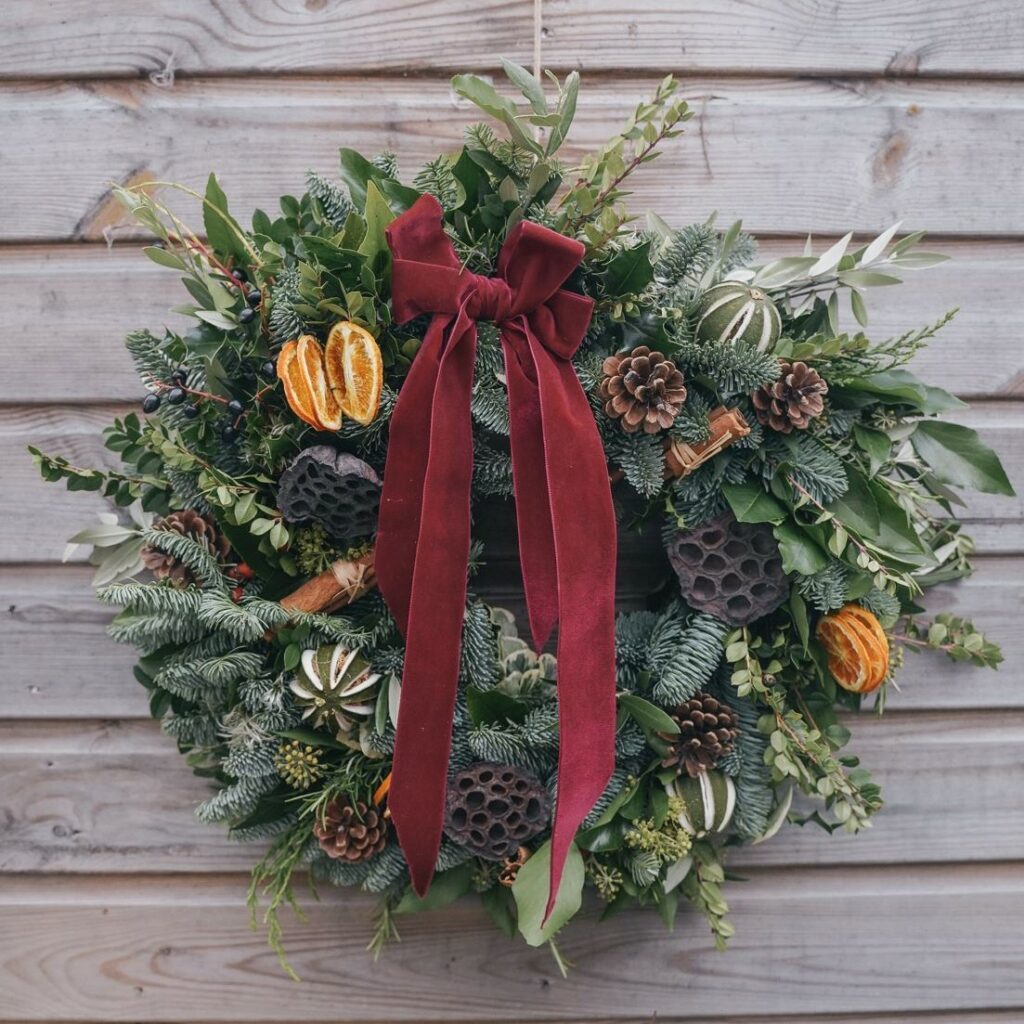
Strength & Stem uses floristry to train and support women who have survived human trafficking on their journey to independence and freedom. Their training programs give participants the opportunity to be creative, find community, experience the therapeutic benefits of working with flowers, and learn core floristry skills like vase arrangements, wreaths, garlands, flower crowns, and hand-tied bouquets. They also provide mentorship, secondary skills training, and work experience. Strength & Stem prioritizes natural, locally grown flowers and avoids single use plastic and floral foam. They generate revenue by offering public classes, workshops, and do-it-yourself kits. All profits are used to support more training programs for female trafficking survivors.
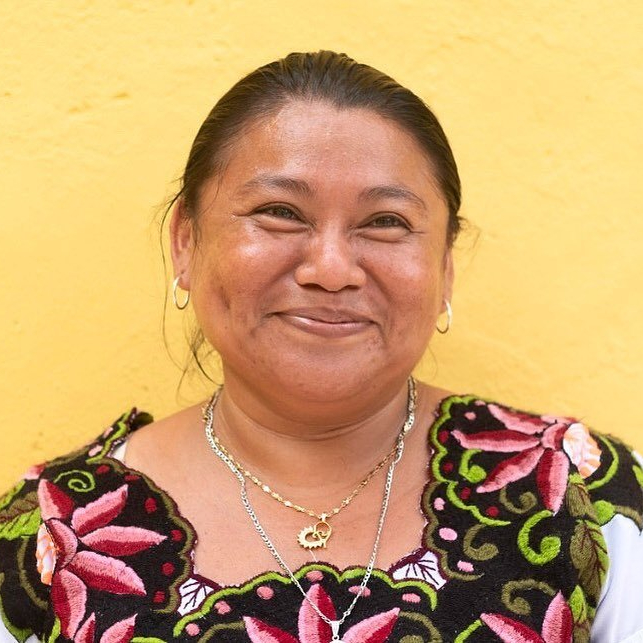
Taller Maya is a collective brand formed by artisan social enterprises in the Yucatán peninsula and a creative team that works to keep the Mayan culture alive. They started in 2002 with the social and economic development work of Fundación Haciendas del Mundo Maya, a local not-for-profit organization. Taller Maya integrates Mayan heritage and contemporary design to develop new artisanal products, improve market access, and generate sustainable sources of income for rural Mayan communities. They offer clothing, accessories, toys, housewares, and more from artisan workshops that specialize in textile, palm, jipijapa, and henequen weaving, stone, wood, and horn carving, embroidery, filigree work, and other artisanal crafts. They also offer honey, sea salt, and other products from Traspatio Maya agricultural groups. Taller Maya has collaborated with international brands like Noma, Christian Louboutin, and Caralarga. Taller Maya is a certified B Corporation and a guaranteed member of the World Fair Trade Organization (WFTO). All profits are reinvested to support communities in the Yucatán peninsula.
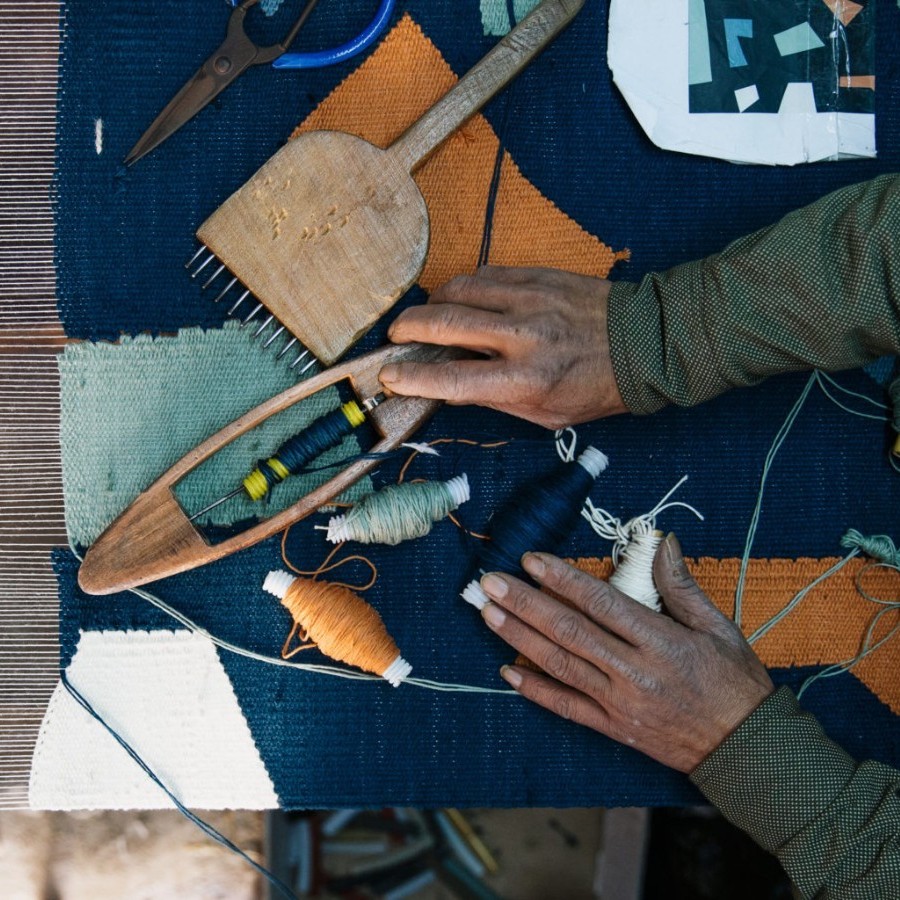
Kiliim aims to revive and sustain local Egyptian crafts and artisan communities by integrating traditional techniques and modern designs. Decades ago, the village of Fowwa in the Nile Delta had over 2,000 kilim weaving workshops, but when the founders of Kiliim first visited in 2016, there were fewer than 200, and the next generation didn’t feel there was a future for the craft. Kiliim has developed a collaborative process that connects the artisans with some of Egypt’s most talented designers to create new products, value chains, and market opportunities. They offer handwoven rugs, bath mats, cushions, quilts, throws, and poufs made from wool and Egyptian cotton. They have also launched a “Curated by Kiliim” range of ceramic and wood housewares from craft communities across the country. Killim follows fair trade standards and provides stable incomes that are 50 percent higher than the industry average. They use their profits to build roofs, install running water, and pay medical bills for people in need. Kiliim is a guaranteed member of the World Fair Trade Organization (WFTO).
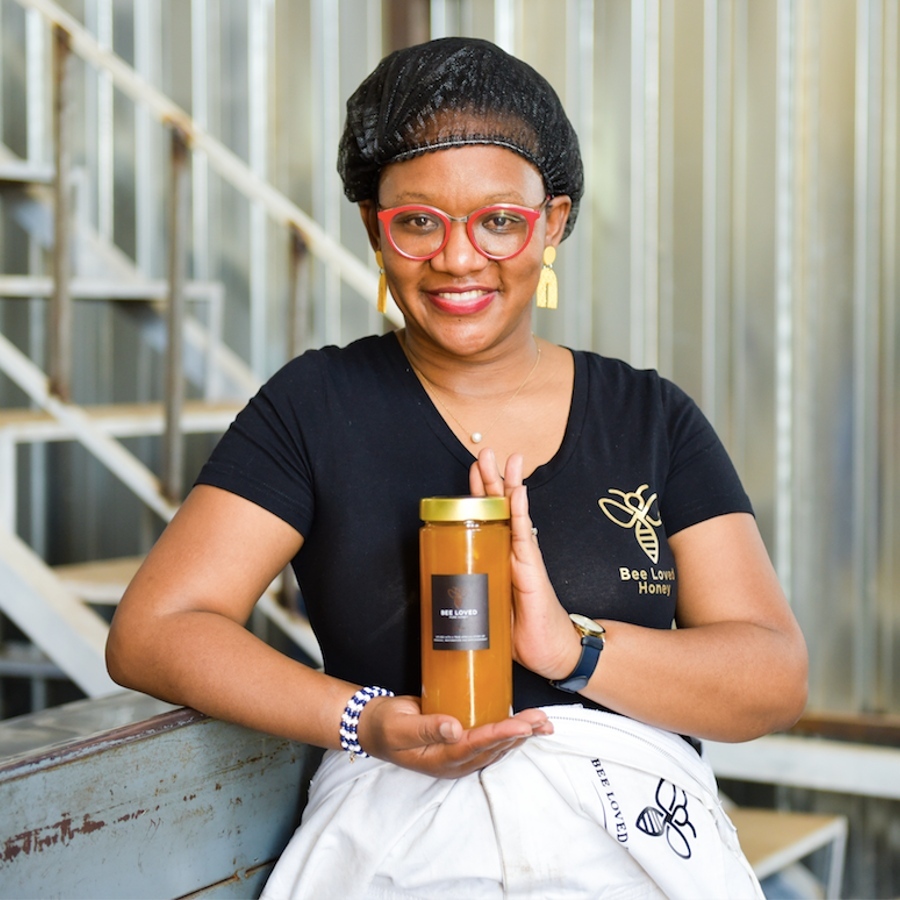
Taung, South Africa
Bee Loved Honey supplies pure African honey that empowers people in disadvantaged rural communities, stimulates local economies, and restores honey bee populations. South Africa currently imports more than 4,000 tons of honey from China and other countries with little information on purity and quality. Bee Loved Honey is mobilizing and developing sustainable value chains for high quality African honey. They manufacture affordable hives, provide beekeeping training for small-scale farmers, purchase honey through consistent offtake agreements, and retail pure unadulterated honey under the Bee Loved brand. Beekeeping has a low barrier to entry and with proper market channels can provide consistent, reliable income for rural farmers. Bee Loved Honey has launched a campaign to manufacture one million beehives by 2025 and distribute them across the continent for economic empowerment and environmental renewal.
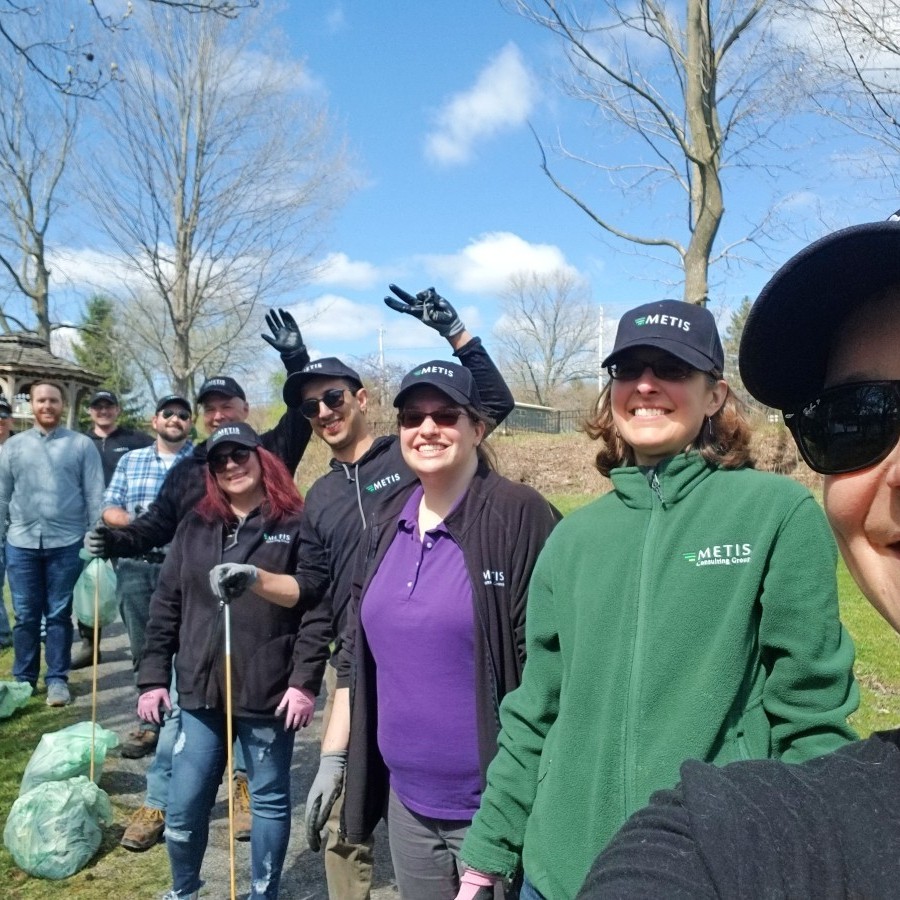
Metis Consulting Group builds thoughtful technology solutions with a focus on mutual respect, inclusion, transparency, and social responsibility. They specialize in custom software development, single sign-on, integrations, content management, emarketing, bulk email applications, and database solutions. As a disability-owned business, Metis offers substantial support for employees with disabilities and caregivers of people with disabilities including remote and flexible work options, custom equipment, accessible facilities, extensive paid time off, and more. Employees also receive paid time off and organizational support for volunteerism. Metis uses renewable energy onsite and purchases offsets for employee commutes and business travel. They provide pro bono and discounted services to nonprofits, social enterprises, and B Corps, sponsor local organizations and events, and participate in WeTheChange, The Care Economy Business Council, Careers in Code, and other mission-aligned networks. Metis is registered as a New York Public Benefit Corporation and is a certified B Corp and Disability Owned Business Enterprise.
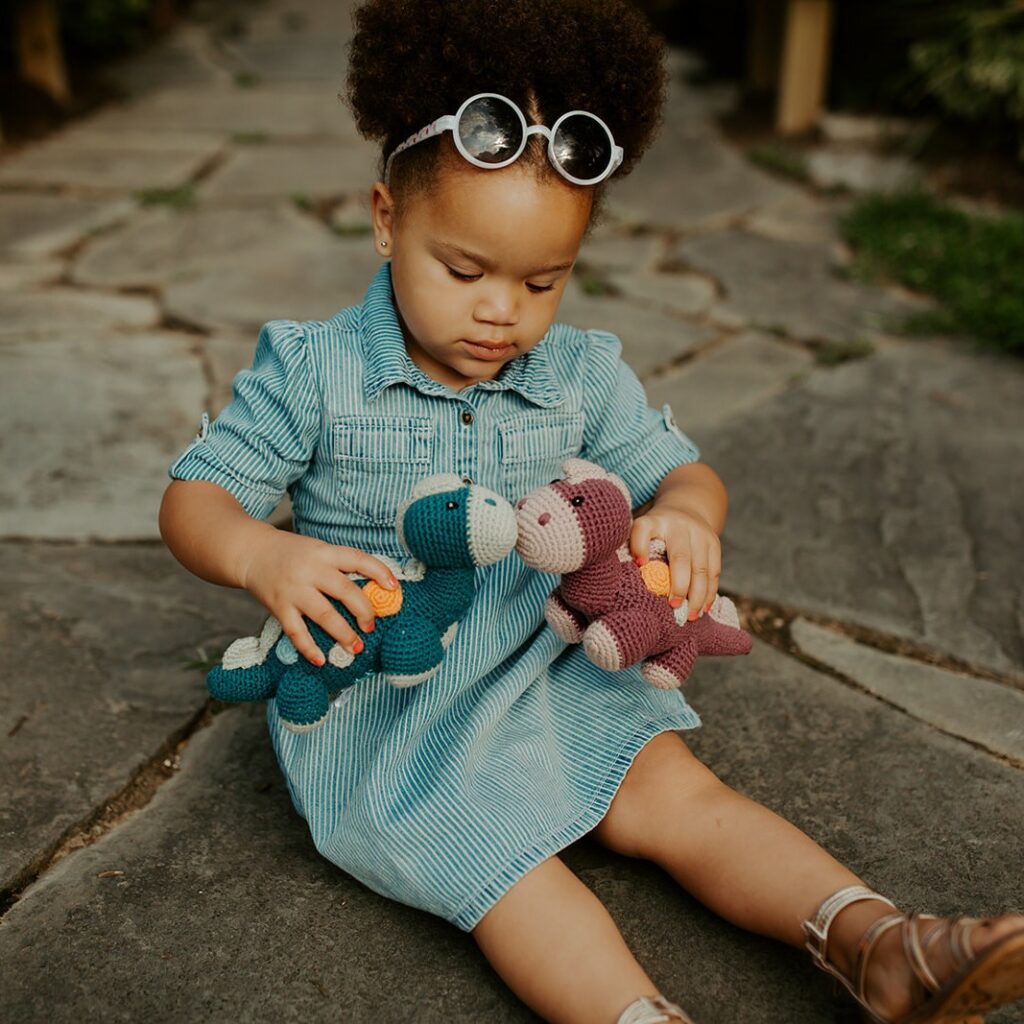
York, England, United Kingdom
Pebble specializes in contemporary fair trade toys that are hand knit or crocheted by Hathay Bunano artisans in Bangladesh. Hathay Bunano, which means handmade in Bangla, is a not-for-profit social enterprise that was started in 2004 to create fairly paid, flexible employment opportunities for rural women in disadvantaged areas. Their toys, rattles, baby blankets, and hats meet international standards for child safety. Pebble offers a certified organic cotton range and ships in compostable packaging. Profits are used to support local communities, promote the fair trade movement, and expand the impact of Hathay Bunano. Pebble is a guaranteed member of the World Fair Trade Organization.

Arca connects migrant women from Latin America and the Caribbean with new possibilities through photography. Migrant populations in Brazil are often excluded from society and have difficulty accessing the formal labor market due to communication difficulties, lack of documentation, and prejudice. Arca trains migrant women to express themselves through fine art photography and pays them for the images they produce. They also provide training in event photography and entrepreneurship. The women develop a social network and friendships during the training and receive support from the group to address the personal, professional, and cultural challenges that are common within migrant communities. The images are sold online and are available as digital downloads to support local printing and framing services and reduce the impact of shipping. By promoting these images, Arca aims to challenge gender and cultural stereotypes and amplify the perspectives and experiences of migrant women. Arca is part of Unleash Plus and Yunus & Youth.
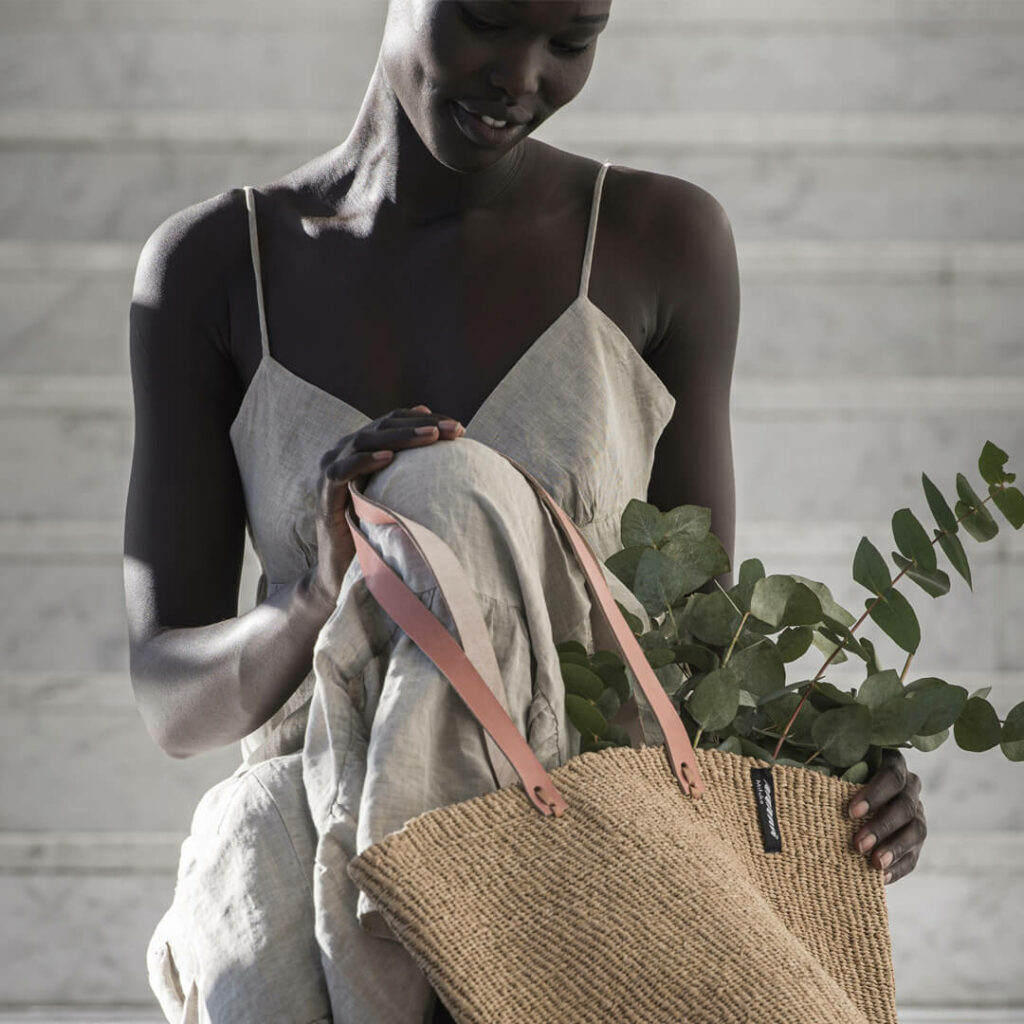
Machakos, Kenya
Mifuko is a “radically sustainable” fair trade social enterprise that celebrates the fusion of Nordic design and African handicraft. They create unique housewares and accessories, empower women, nurture craftsmanship, and contribute to the wellbeing of artisans, their families, and their communities. Mifuko specializes in baskets and basket bags that are handmade in Kenya from local sisal, upcycled and recycled plastic, unbleached paper, milulu grass, palm leaves, and vegetable tanned leather. They also create ornaments, candle holders, soap dishes, scarves, and other products in partnership with fair trade workshops in Ghana, Ethiopia, and Tanzania. Mifuko donates to the Mifuko Trust, a not-for-profit organization founded in 2012 to support artisans’ communities in the Machakos region of Kenya. The Trust works with more than two dozen women’s self-help groups on locally initiated projects like solar lamps, rain water collection tanks, compost toilets, tile production, and tree planting. Mifuko is a guaranteed member of the World Fair Trade Organization (WFTO).
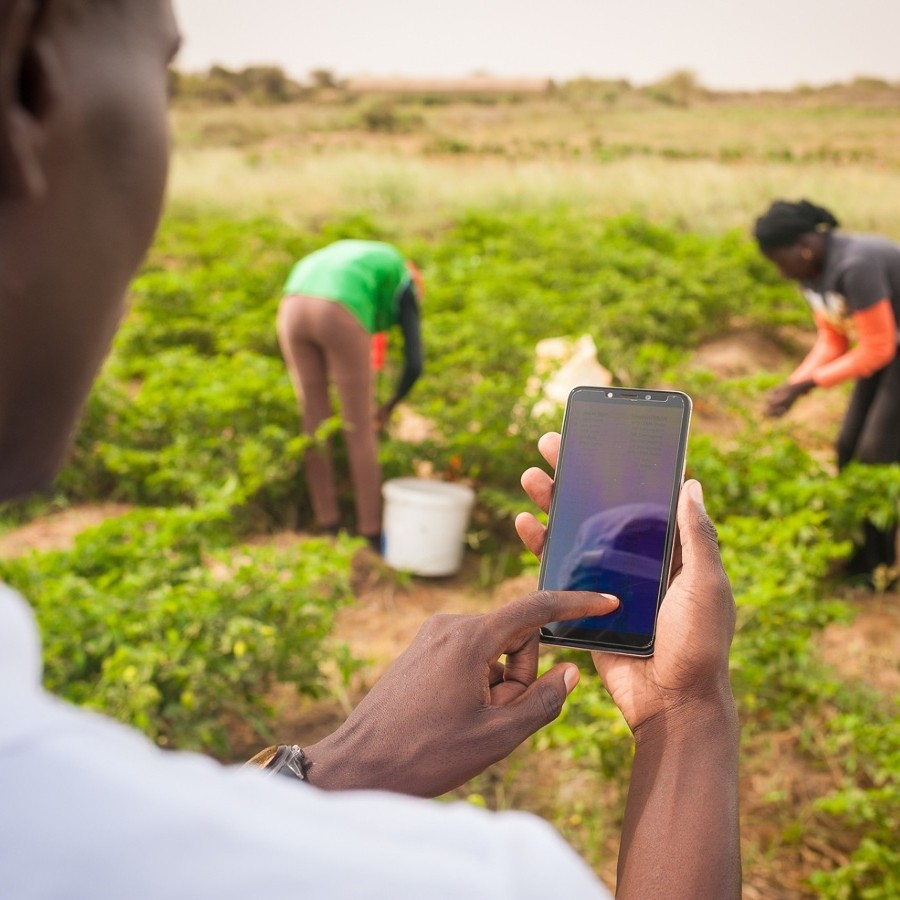
GSmiles-Agri is a mobile app that supports organic farming and helps small-scale farmers, cooperatives, and agribusinesses collect and manage field data for improved monitoring, decision making, and traceability. Farmers are able to securely store their own agricultural data in one place, manage sales, expenses, and financial flows, get real-time insights into farm activities, crop progress, and production, and improve decision making. Cooperatives and agribusinesses are able to maintain a central register, plan and monitor production by farmer, crop and field, disseminate agricultural best practices, ensure traceability and compliance with standards, and manage payments to farmers. The GSmiles app includes an offline mode to support data collection in fields without connectivity. The app also makes it easier for farmers to access quality inputs, like neem and other biopesticides, from local suppliers. GSmiles-Agri is an active member of Association Nationale pour l’Agriculture Biologique au Togo (ANA-Bio), a national organic association in Togo.
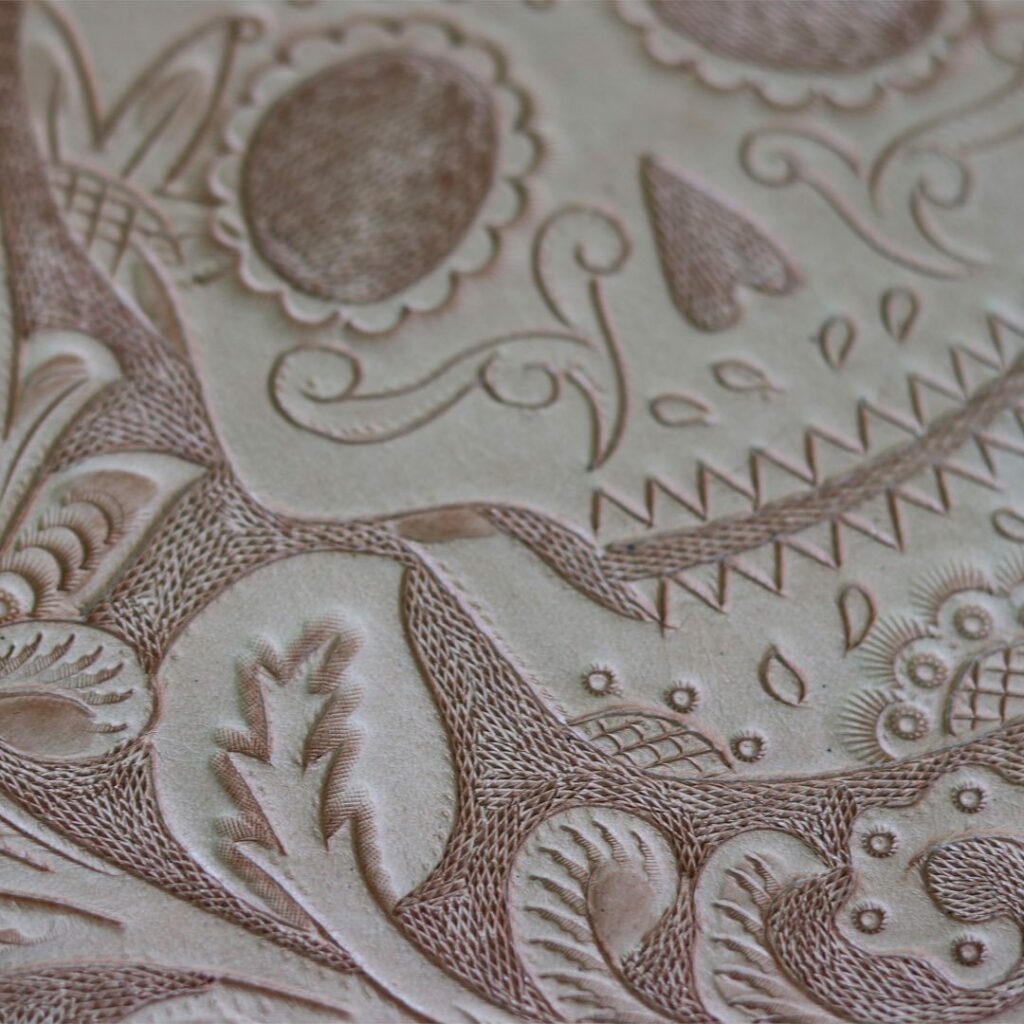
Tekiti helps connect artisan workshops in rural Mexico with new commercial relationships and economic opportunities. They have developed a network of artisan community leaders across 6 states and more than 35 artisanal techniques. More than half of these leaders are women and 35 percent are indigenous. Tekiti helps them map their costs, analyze production times, set fair prices for their work, and structure and grow their businesses. At the same time, Tekiti partners with retailers, hotels, restaurants, and other companies that want to add handmade crafts to their product range or brand experience and assists with product development, sourcing, and consistent supply. They offer products made of stone, wood, clay, ceramics, cotton, wool, palm, and other natural materials and help ensure fair trade practices, safe working conditions, and no child labor in the supply chain.
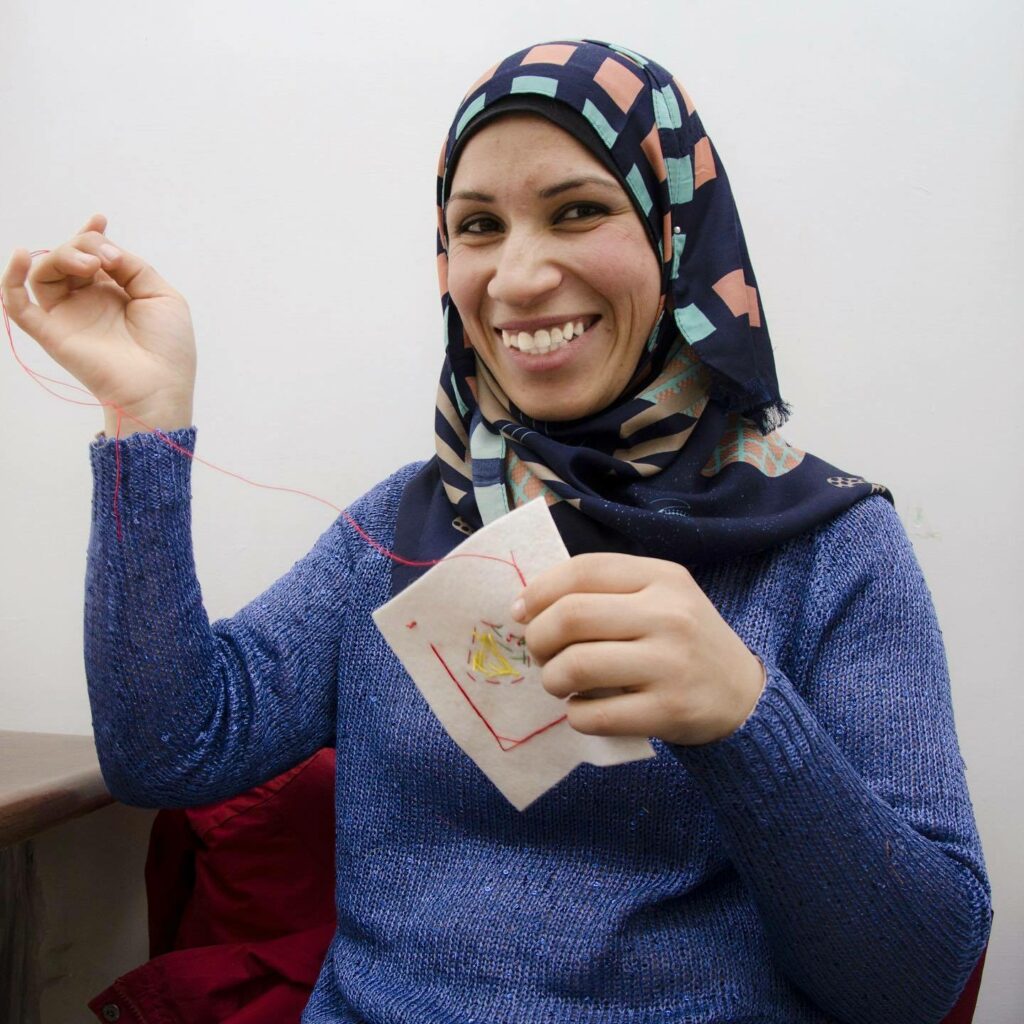
Zeki Learning creates fair trade educational toys that economically empower women artisans and refugees in Palestine. They work with experienced educators to design toys that support cognitive development, emotional intelligence, language learning, and interactive play at home or in the classroom. Language learning resources are available in Arabic, English, and Spanish. Products are handmade from locally sourced materials and upcycled fabric scraps and meet international child safety standards. Zeki Learning started as fundraising initiative to support education programs for refugee children in the West Bank and expanded into an artisan center that provides training and livelihood opportunities for refugee and low-income mothers in Zababdeh. Their products are now available online and are used in preschools, Head Start programs, Montessori classrooms, and other child development centers across the United States and Europe. Zeki Learning is a project of Child’s Cup Full, a 501(c)3 not-for-profit social enterprise. They are part of The Artesan Gateway and Fair Trade Federation.
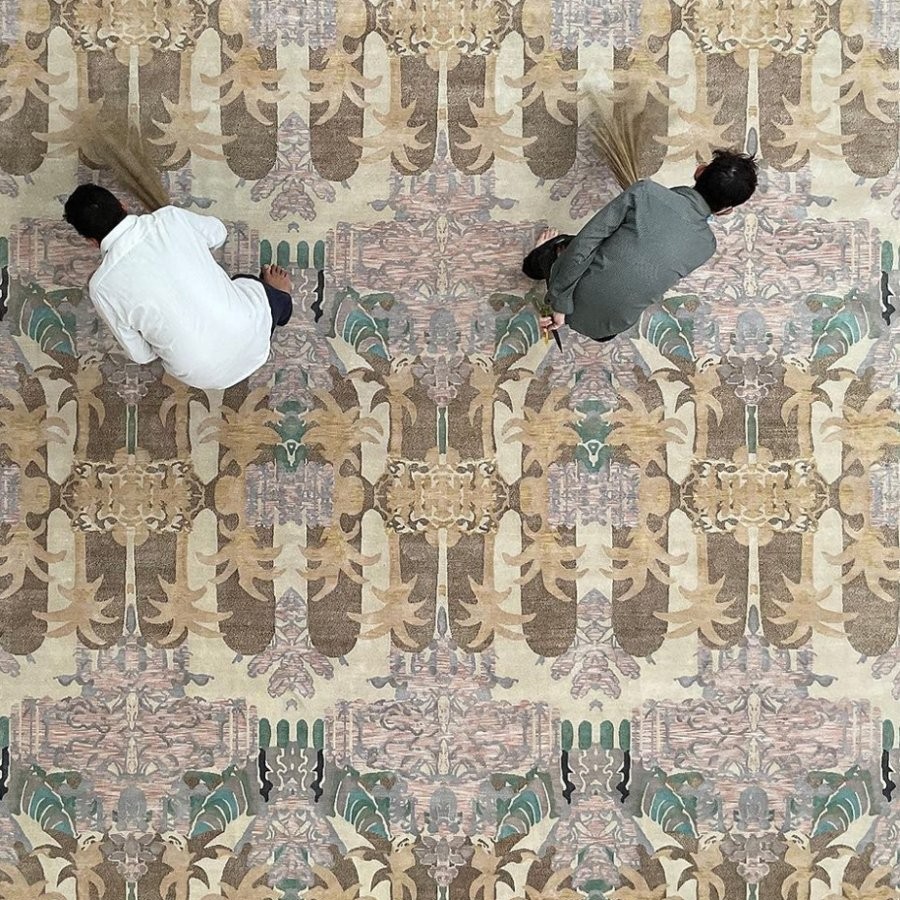
Eskayel is a New York based design studio that specializes in environmentally responsible wall coverings, fabrics, carpets, furnishings, and accessories. Their design process usually starts with paintings inspired by nature and travel. Rugs are skillfully handcrafted by artisans in Nepal from wool and silk. Other textiles and wall coverings are printed locally on natural linen, organic cotton, Forest Stewardship Council certified paper, and recycled materials using non-toxic, water-based inks. Eskayel uses digital printing to minimize energy and water use and makes all products to order to eliminate overproduction and stock waste. Eskayel is a member of 1% for the Planet and donates to Union of Concerned Scientists, Mission Blue, 5Gyres, Sea Shepherd Conservation Society, Surfrider Foundation, Greenpeace, and Vital Action Project.
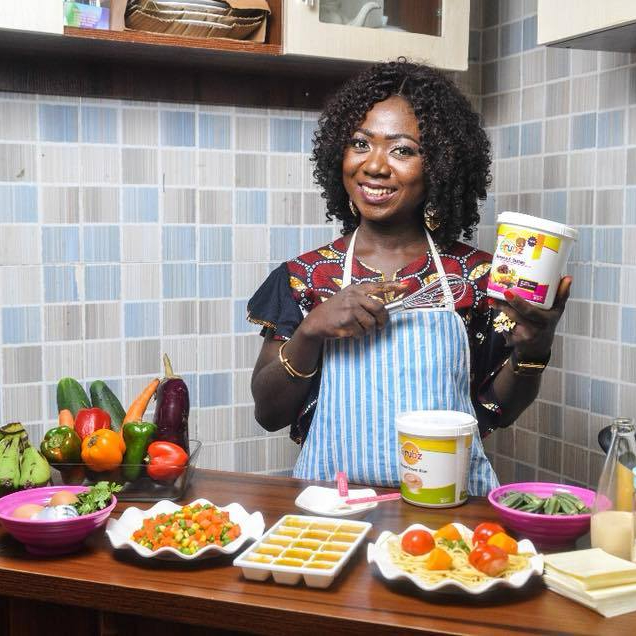
Baby Grubz aims to improve the nutritional status of babies across West Africa by offering all natural cereals, snacks, meals, and supplements for children from 6 months to 5 years old. They sustainably source local grains, vegetables, fruits, and spices and provide an affordable local alternative to imported weaning foods. All meals are specially formulated to suit an African palate and address micronutrient deficiencies and malnutrition issues that are prevalent in the region. Baby Grubz trains their distributors as nutrition educators and offers seminars, books, podcasts, a helpline, and other support services. They keep their products affordable to ensure that all children have access to optimum nutrition regardless of their parents’ ability to pay
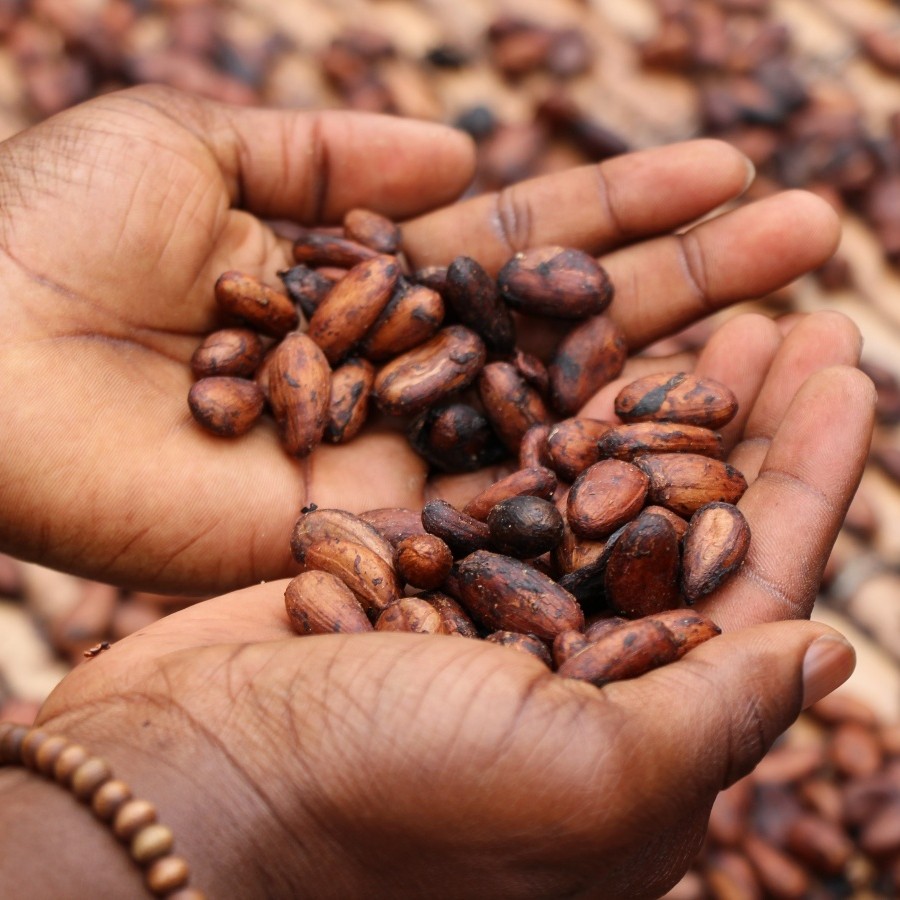
Catalyst Markets is a collaborative initiative developed by members of Catalyst 2030 to accelerate the transition to a regenerative and inclusive economy. In the conventional economic story, the purpose of business is to maximize profits and grow. This has created a race to the bottom that is particularly visible in modern consumer goods and ecommerce. Low prices do not reflect the true social and environmental costs: poverty wages, unsafe working conditions, human rights violations, toxic materials, pollution, ecosystem collapse, climate change, and monopolistic concentration of power. Catalyst Markets brings together social enterprises that are cocreating a new economic story and choosing to prioritize people and planet over profit maximization. The focus is on addressing shared challenges, finding synergies in ongoing work, integrating existing services, and collaborating to catalyze systemic change. Catalyst Markets operates as a member-driven, not-for-profit initiative within the Catalyst 2030 network.
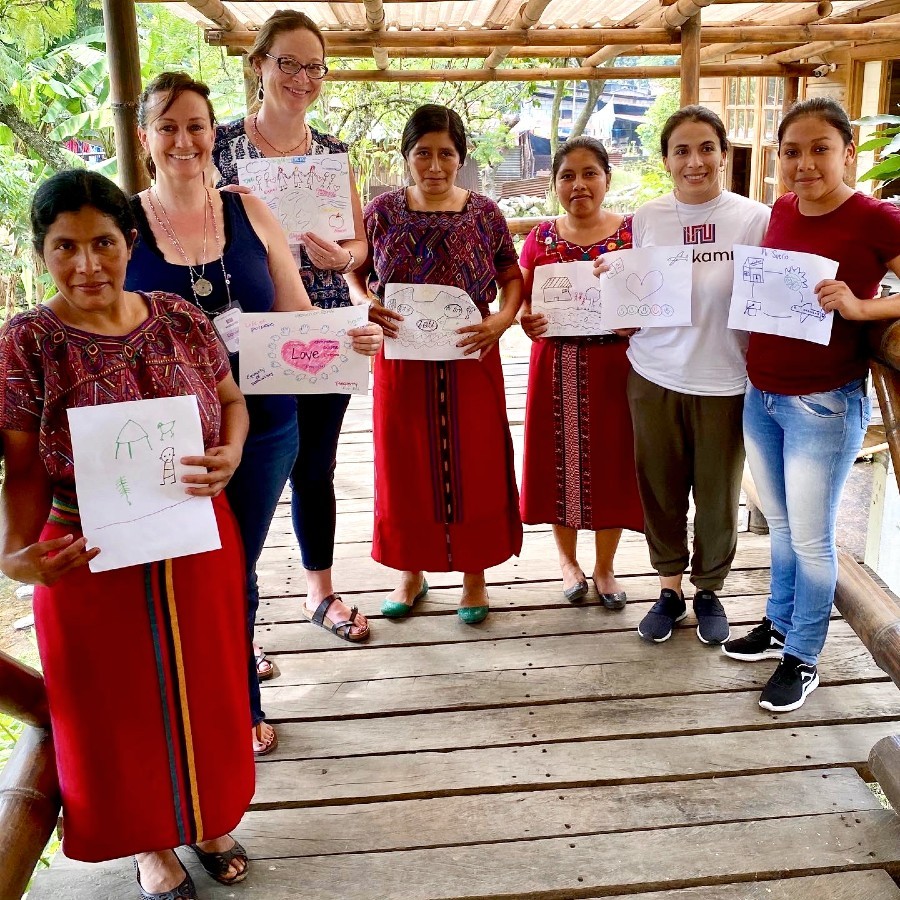
Lotus Sojourns gives adventurous, mindful women an opportunity to be a part of a global community connected by aligned values, transformational experiences, and culturally immersive travel. They offer global travel programs, wilderness retreats in the United States, unique mother-daughter itineraries, and book sojourns that can be joined from anywhere. The journeys support local businesses, give back to local communities, create as little environmental impact as possible, and focus on deep authentic engagement with people and place in each destination. Lotus CommuniTees were developed to support organizations in the Lotus Sojourns community. The shirts are made from sustainably sourced materials by workers who earn fair wages. Ten dollars from each purchase is donated to the featured organization. Lotus Sojourns is part of the Adventure Travel Trade Association, Travelers Against Plastic, and the Transformational Travel Council.
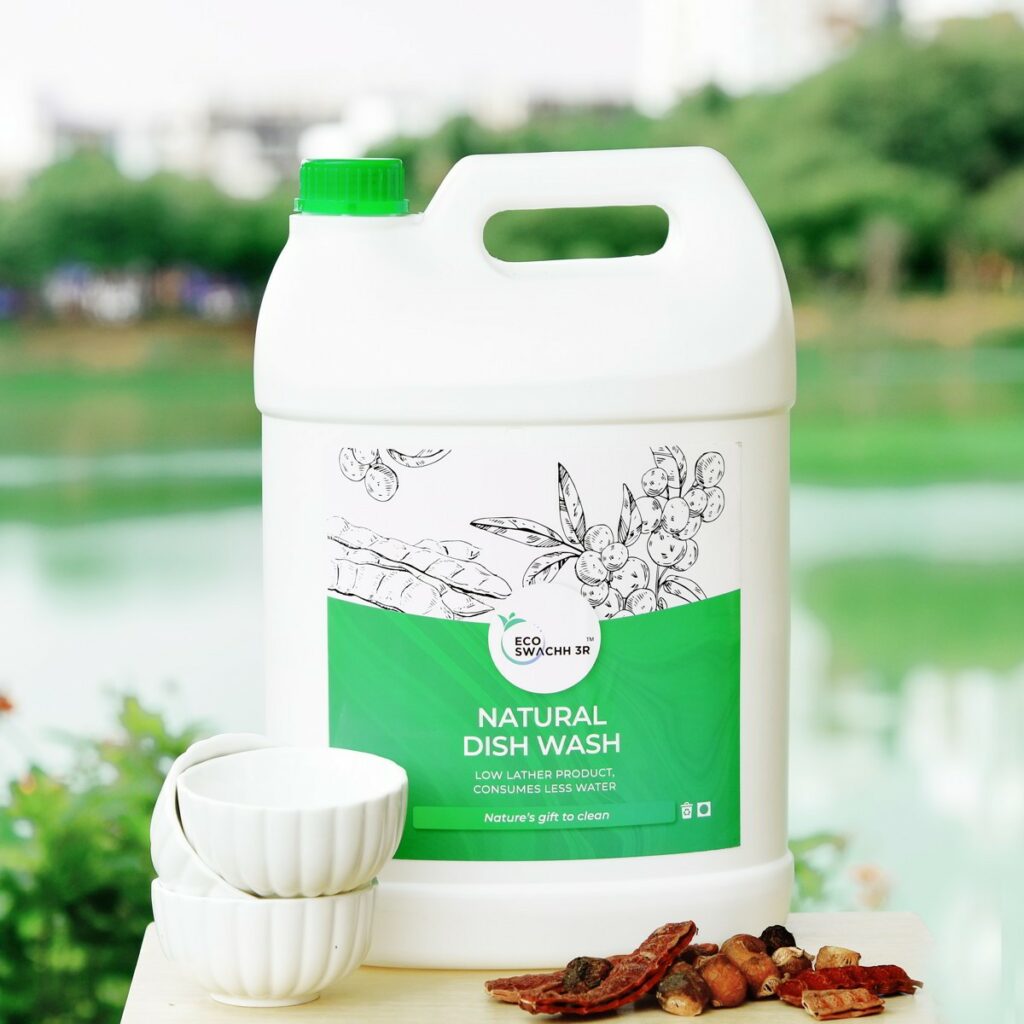
Biological Research Innovation Centre and Solutions (BRICS) develops innovative bio-based personal care, home care, and garden products that are better for human health and the environment. Their EcoSattva 3R range includes natural shampoo, body wash, face wash, hand wash, and hand sanitizer and their EcoSwachh 3R ranges includes natural fabric wash, stain remover, dish wash, glass cleaner, surface cleaner, and disinfectant made from soap nut, shikakai, moringa, and other plant-based extracts, surfactants, and essential oils. Organic gardening products are made from natural minerals, humic acid, biosurfactants, neem, and other plant extracts. BRIC Bio sources plant-based materials from forest committees, tribal organizations, cooperatives, and farmer federations that follow sustainable practices. They package in bulk and are developing refill systems to increase affordability and reduce waste. BRIC Bio is part of Garden City Farmers in Bengaluru and actively participates in networks, initiatives, and events to promote urban gardening, organic practices, and natural living.
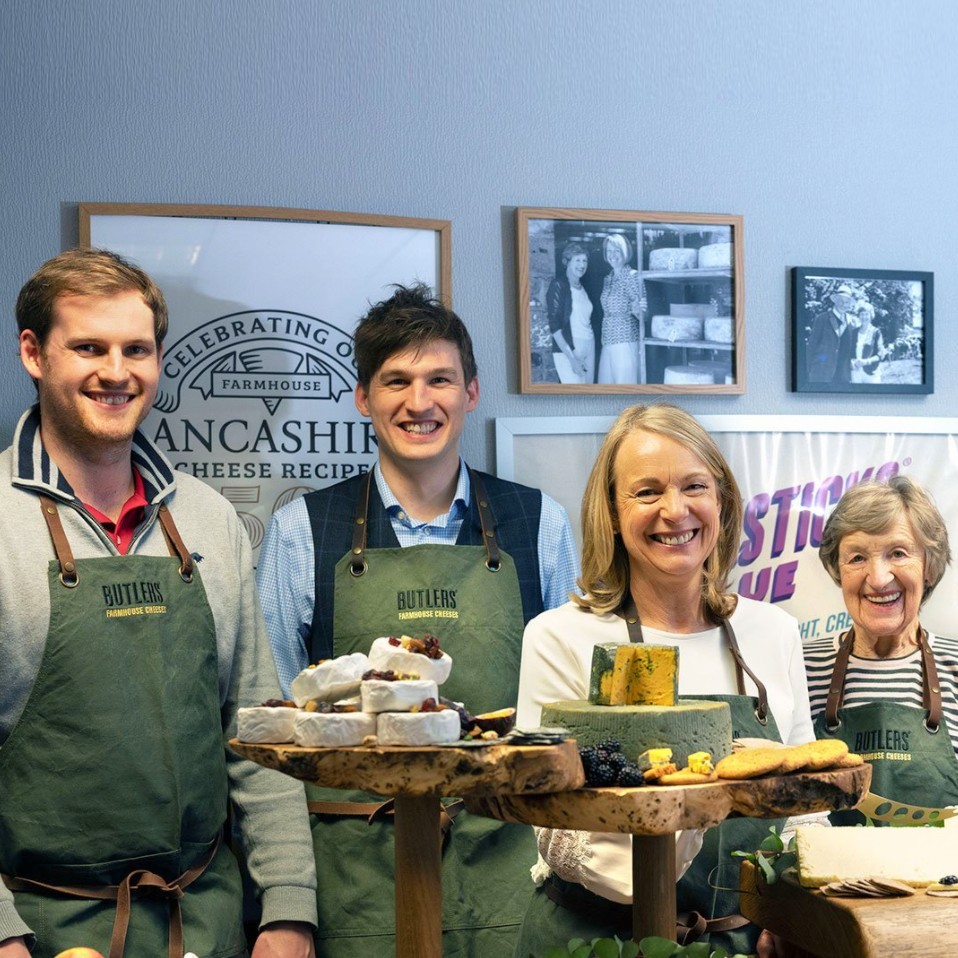
Butlers Farmhouse Cheeses is a fourth generation family business that has been producing hard, soft, and blue cheeses in rural Lancashire since 1932. All of their cheeses are made and matured under one roof in their farm house dairy, and the majority of their milk comes from their own herd. During periods of high demand or low supply, they source from neighboring farms within 10 miles to keep the food miles and carbon footprint low. Butlers offers a local, ethical alternative to mass produced cheese from industrial agriculture operations and is continuously working to increase their environmental responsibility. For example, cheese packaging is normally made of several different polymers to maintain quality and prevent food waste, which makes it difficult to recycle. Butlers has been investing in alternatives, and in 2021, they launched a single polymer package that is fully and easily recyclable. They are currently working on compostable packaging alternatives made from natural materials like seaweed. Butlers contributes to local community initiatives and events and sponsored the installation of rural broadband for people in the local area.
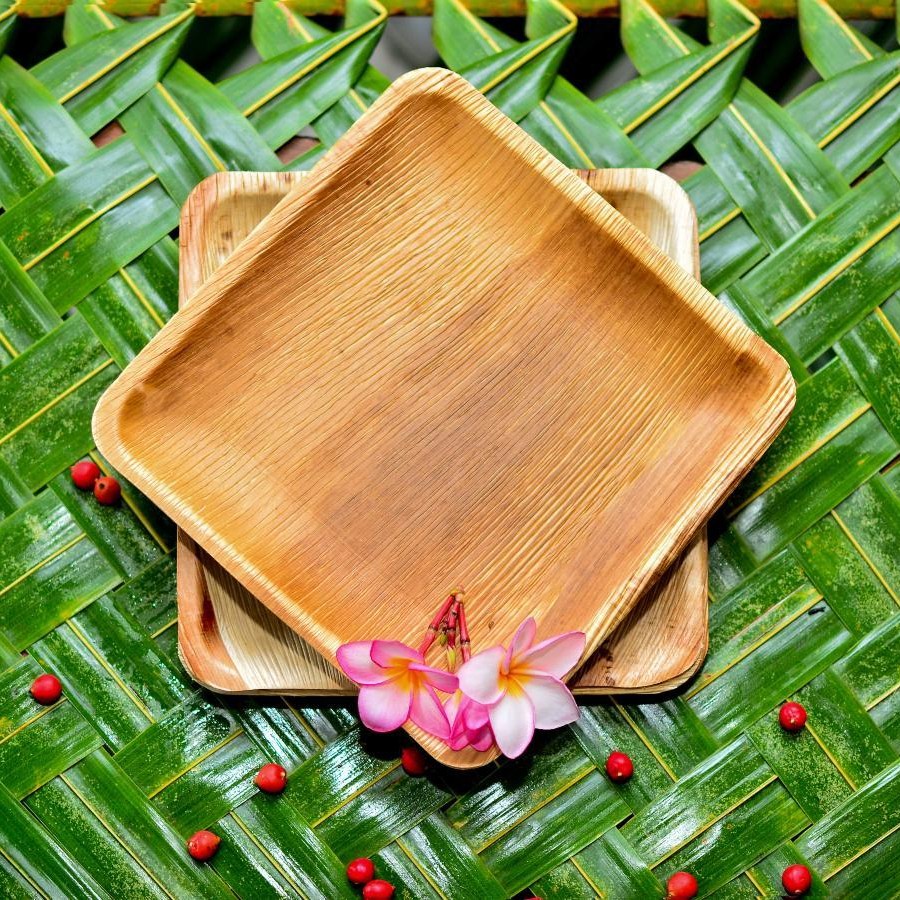
Palm2Go helps businesses replace single-use plastics with sustainable packaging solutions derived from agricultural waste. Their palm leaf plates, bowls, cups, trays, and takeaway containers are food safe, naturally water repellant, heat resistant, deep freezable, and fully home compostable. They create livelihood opportunities in rural areas and provide workers with free meals, health insurance, and other benefits. Palm2Go is registered in Germany and Sri Lanka and is a member of the Greentech Alliance.
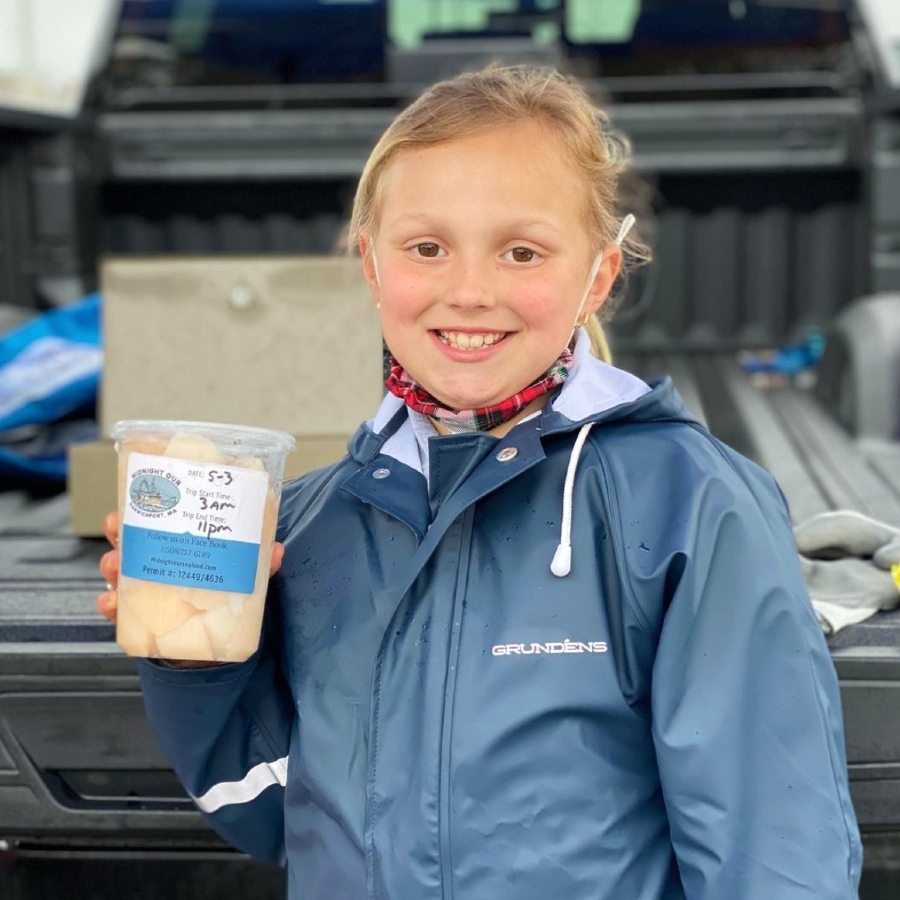
Midnight Our is a family-owned day boat operating out of Cape Cod that specializes in wild caught fresh scallops. This Atlantic sea scallop fishery is sustainably managed, responsibly harvested, and certified to Marine Stewardship Council standards. Boats use special gear to minimize bycatch, avoid protected areas, and harvest according to rotational access areas and a quota system. Midnight Our sells off the dock in Wychmere Harbor, Harwich Port. They raise awareness about sustainable seafood and connect the community to their local food system.
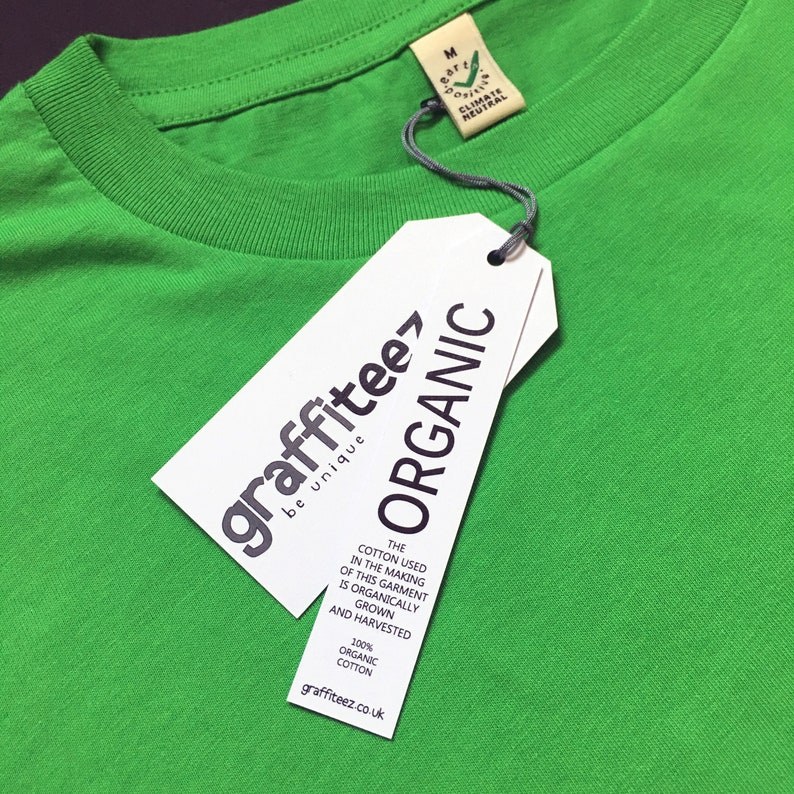
graffiteez creates custom hand printed T-shirts and bags and is committed to the highest possible environmental, social, and ethical standards. They use water-based screen printing inks that are PVC and VOC free and Earth Positive organic cotton T-shirts and totes that are ethically sourced and manufactured using solar and wind energy. Packaging is made from recycled materials and is either recyclable or compostable. graffiteez uses their platform and their designs to promote environmental responsibility and climate action. Products in their Earth Day collection are shipped with a free pack of bee-friendly wildflower seeds.
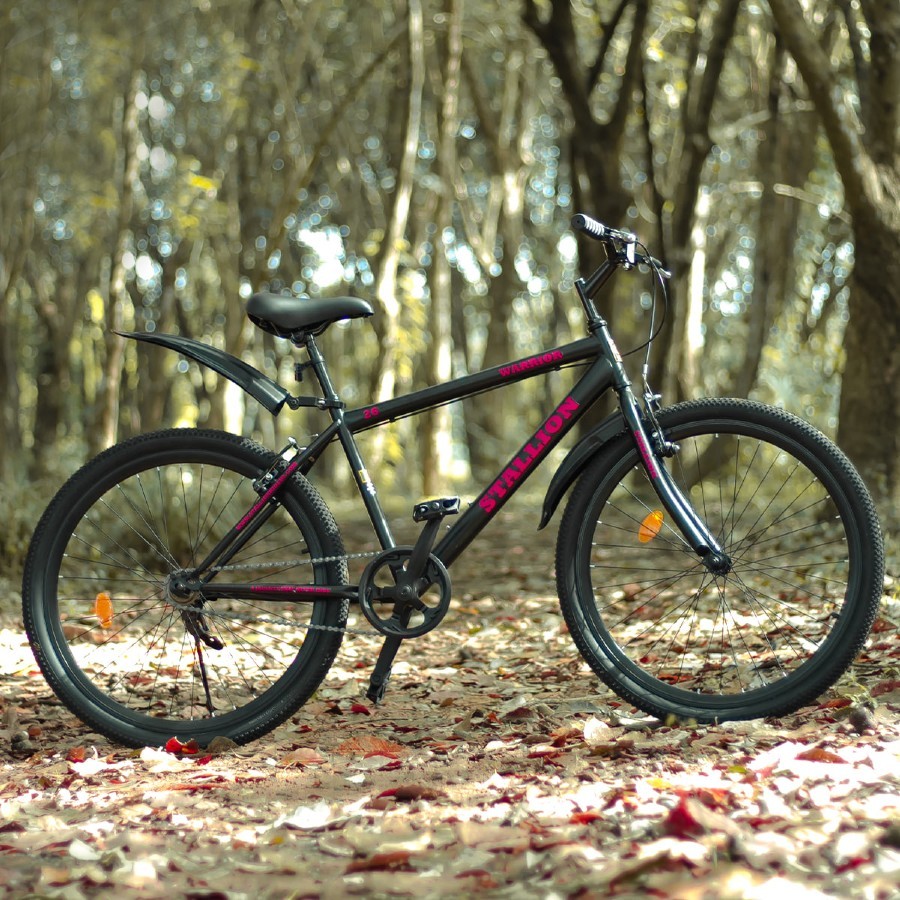
Stallion Riders Bikes is a woman-owned company that designs and manufactures bicycles in Sri Lanka. They provide a healthy, affordable, and sustainable transport option and a local alternative to imported products. Stallion Riders bicycles are designed for durability with a 10-year warranty on the frame and fork and local maintenance and repair services. They assist local entrepreneurs with custom designs, including an electric bike that can be used as a food cart. Stallion Riders creates rural employment opportunities and uses their platform to promote cycling and healthy, sustainable living.
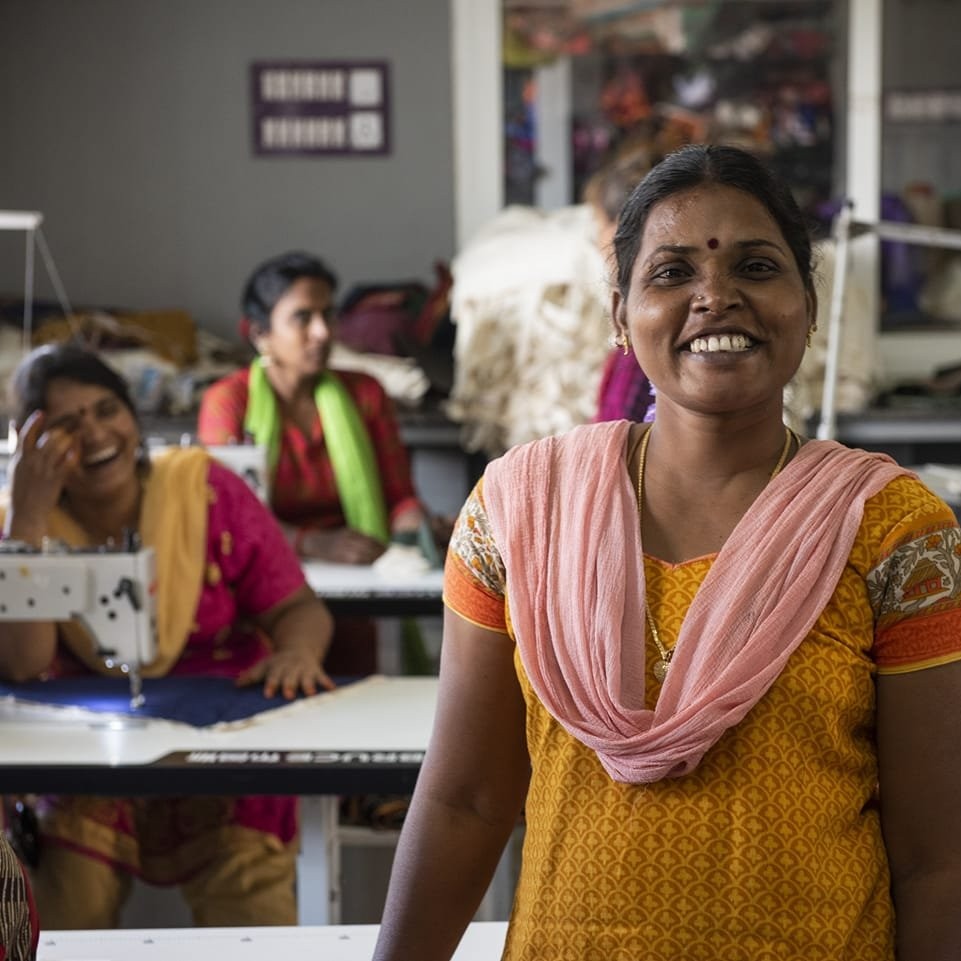
Chadstone, Victoria, Australia
Humanism creates dignified employment opportunities for humans from marginalized and low income communities. They work with women in southern India to produce ethical event merchandise, like customized tote bags, T-shirts, masks, and lanyards, and accessories made from upcycled sarees and organic cotton. Humanism is committed to providing sustainable income, a safe and inclusive work environment, access to training and development programs, self care activities, and an opportunity for collective agency.
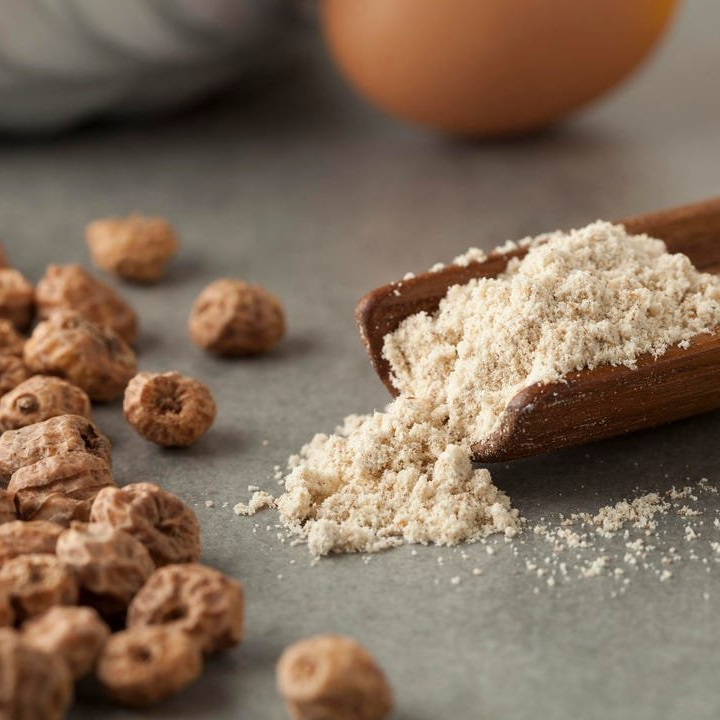
The Nut Place aims to improve nutrition and promote healthy living in Africa by processing locally grown, nutrient dense nuts and legumes. They provide an affordable alternative to imported health food products, particularly for people that are gluten-free, lactose-free, or on other special diets. The Nut Place specializes in tigernuts, tigernut milk, tigernut flour, tigernut millet swallow, cashew nuts, coconut flakes, coconut flour, and bambara flour. They offer discounts and special events for people with diabetes.
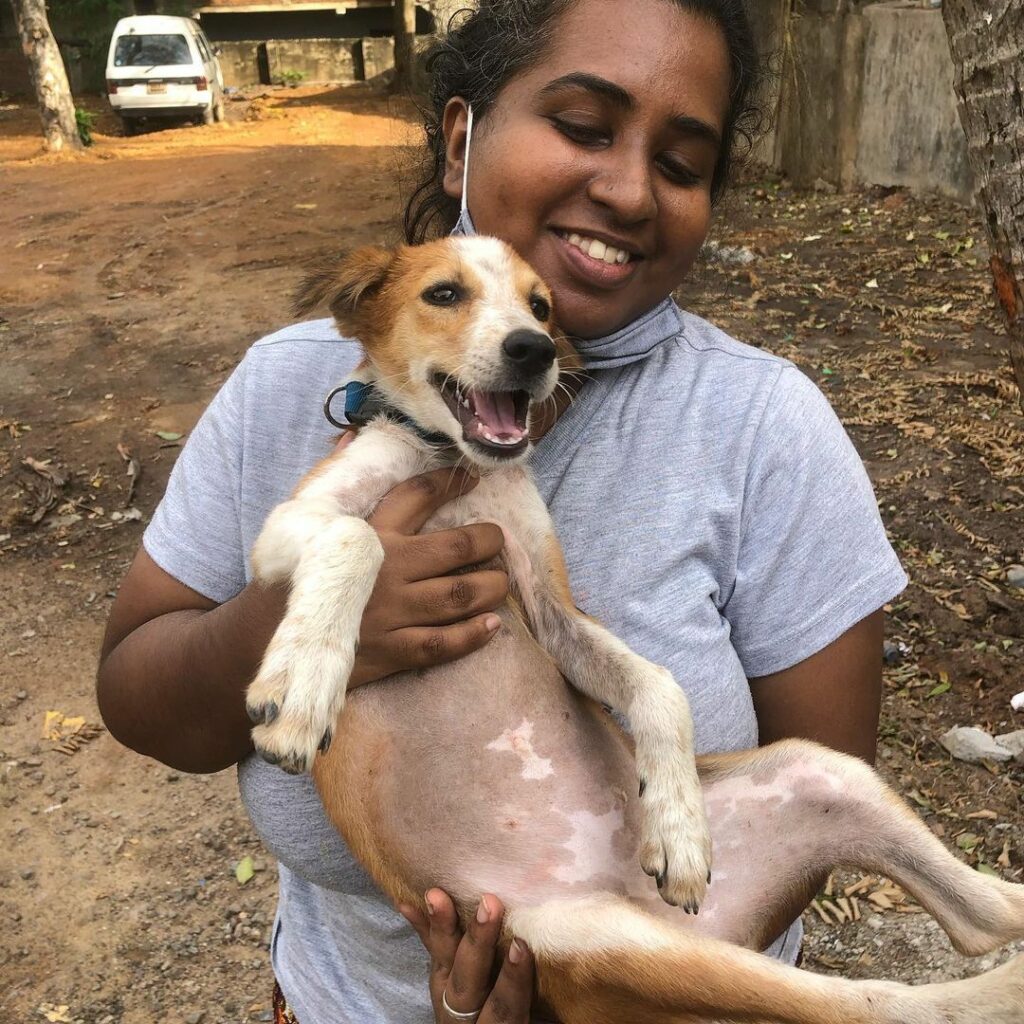
Mattakuliya Animal Welfare is dedicated to improving the lives of animals in their community. They mobilize resources and volunteers to feed, foster, rehome, vaccinate, sterilize, and care for street dogs and cats in need. The Animal Welfare team aims to provide a voice for the voiceless and raise awareness about the humane treatment of animals.
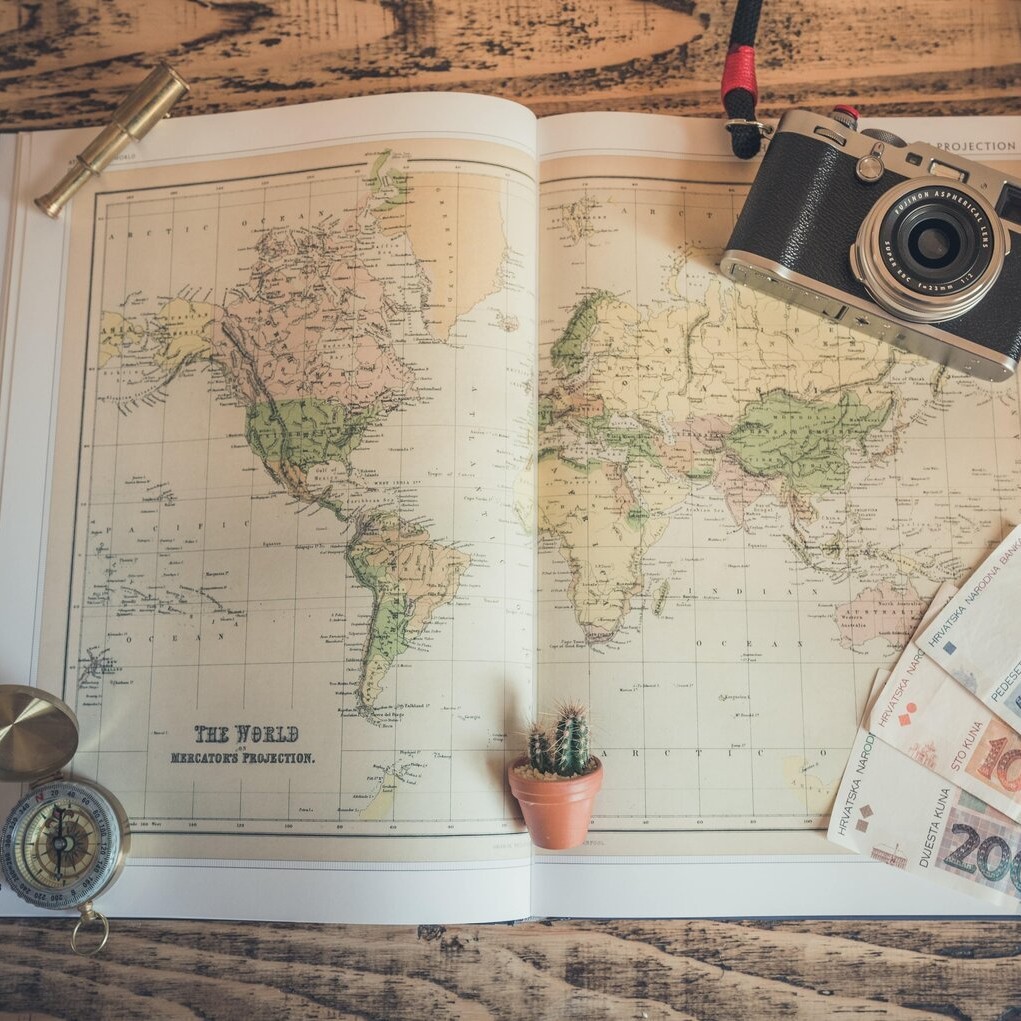
Soul of Travel aims to tell a better story about tourism. The podcast brings together industry professionals, travelers, and community leaders to share their stories and explore how they use travel as a catalyst for creating positive impact. The host, Christine Winebrenner Irick, creates a space for voices that are often overlooked in the travel industry. Topics include sustainability and regenerative travel, empowering women, indigenous rights, and strategies for creating more impactful travel experiences.
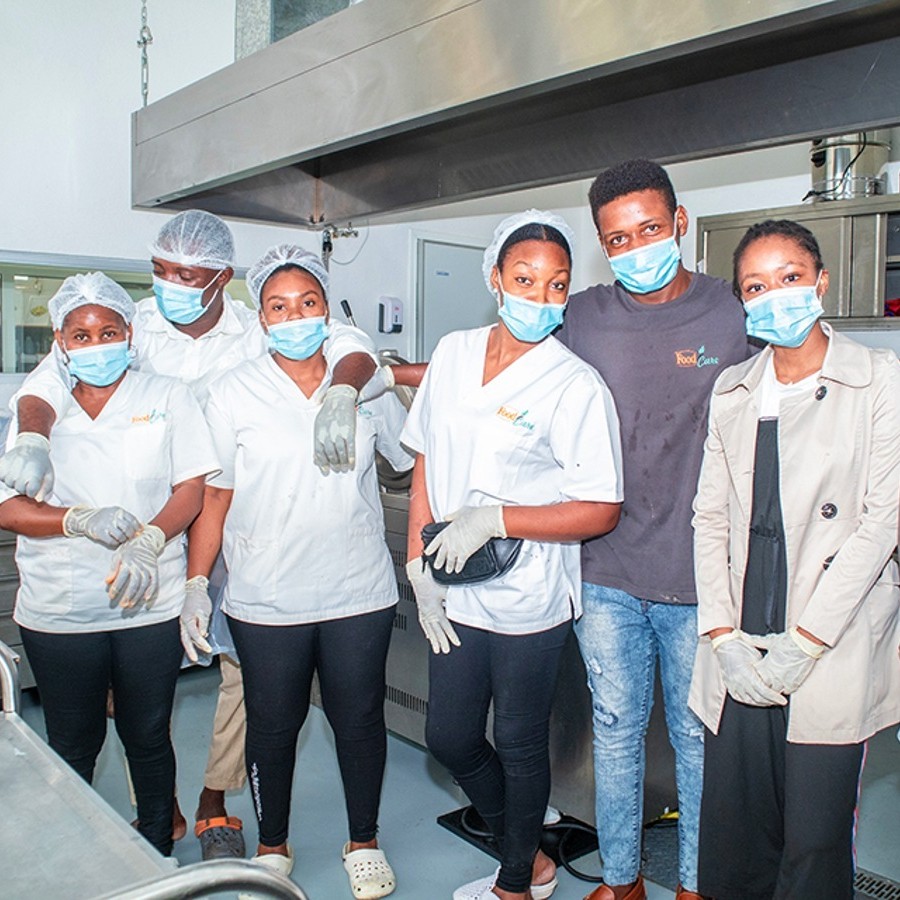
Foodcare promotes food security in Angola by adding value to local food products and supporting small-scale farmers, transporters, distributors, and retailers. Their Mavu product range includes muteta pumpkin seeds, peanut butter, yam flour, manioc fufu flour, dried mushrooms, kizaca cassava leaves, smoked catfish, mopane worms, and kissangua drinks. Value addition reduces food waste and improves year-round access to nutritious local food. Foodcare works with farmers to expand production and adopt environmentally responsible practices. They participate in the Angolan Industrial Association (AIA) and the Angolan Association of Young Producers (AAJP) to support local economic development.
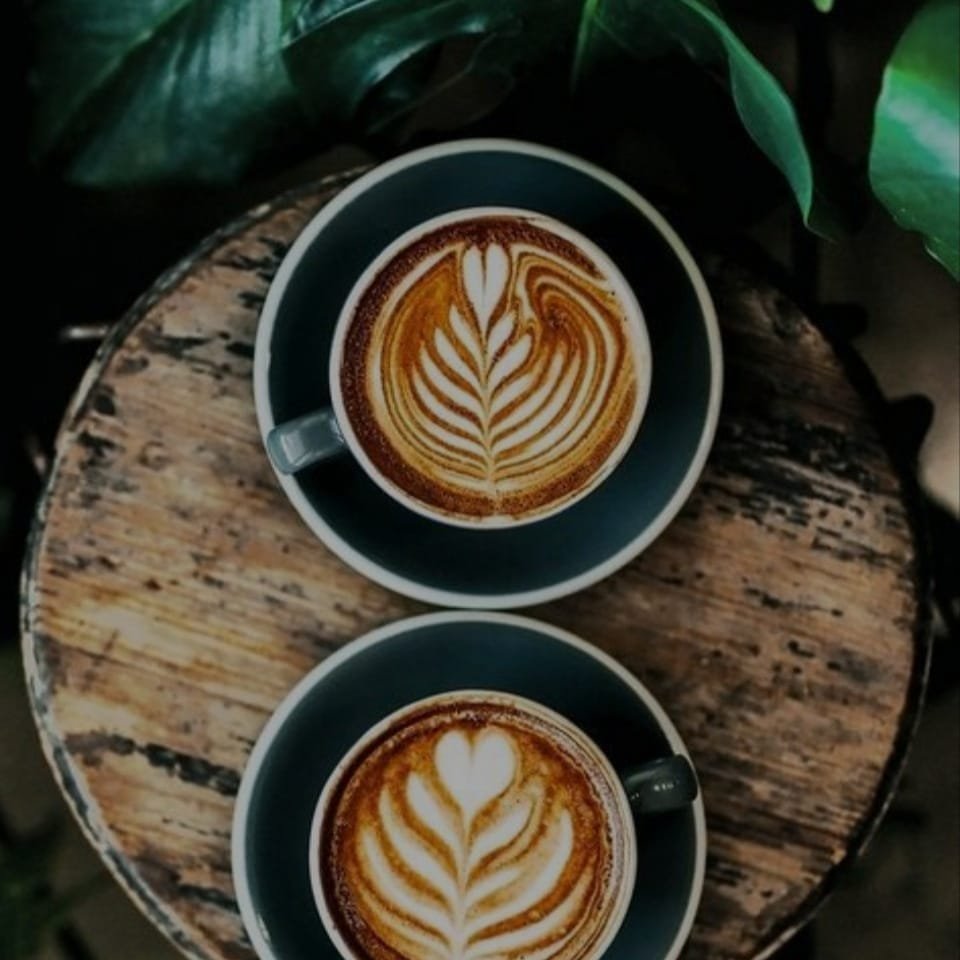
The Wild Monkey is a Colombo cafe that specializes in local coffee and tea, fresh juices and smoothies, and affordable natural food with vegetarian and vegan options. They source ingredients and raw materials from Good Market approved enterprises that are committed to ethical and environmentally responsible practices. The Wild Monkey is working towards becoming a zero waste cafe. They contribute a portion of all sales to protect Sri Lanka’s wild monkeys and their habitat.
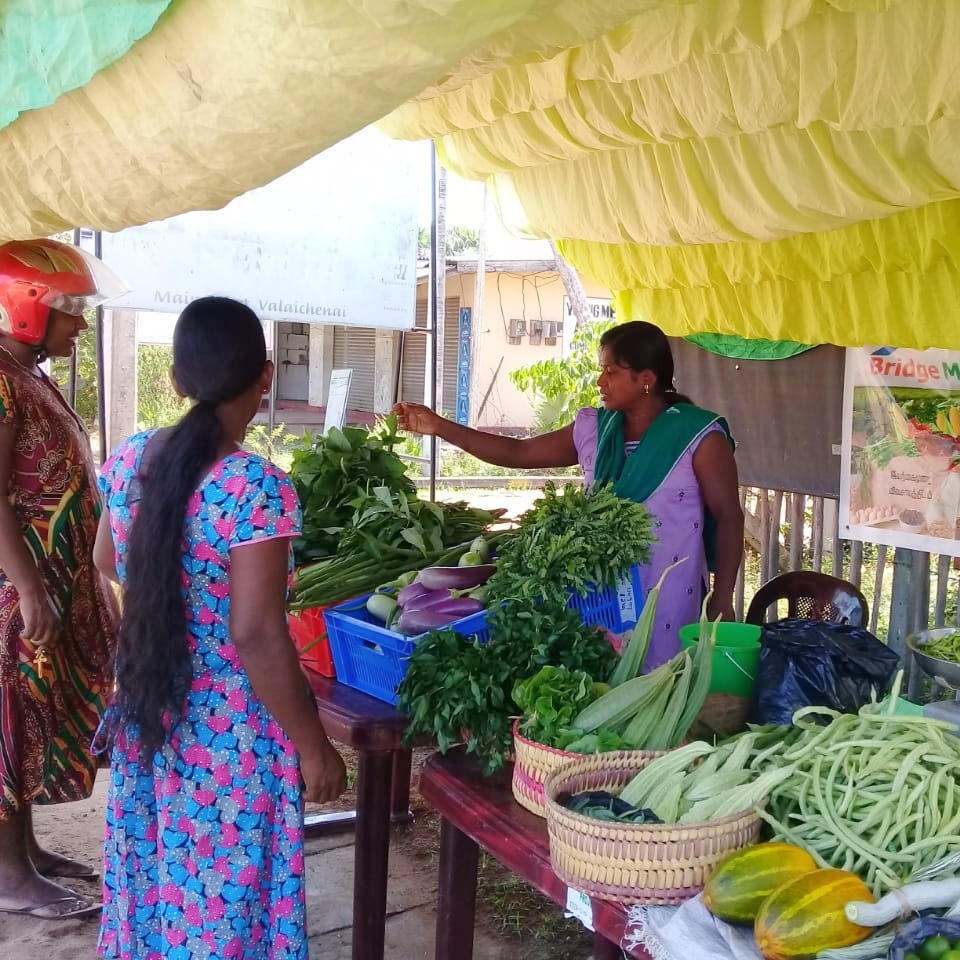
Pasumai Natural Farming Producers Society is a group of small-scale farmers in eastern Sri Lanka committed to providing affordable natural food and improving the environment. They produce compost and liquid fertilizers on their farms using locally available materials, practice crop rotation, actively maintain biodiversity, cultivate local varieties, and save seeds. As a group, they have developed community compost production and a collection center. Members produce a wide range of fresh vegetables, leafy greens, yams, and legumes. Perennial crops include sugar cane, cashew, coconut, mango, papaya, banana, oranges, pomegranate, ambarella, guava, soursop, and moringa. Pasumai Natural Farming Producers Society is verified under a local organic participatory guarantee system (PGS).
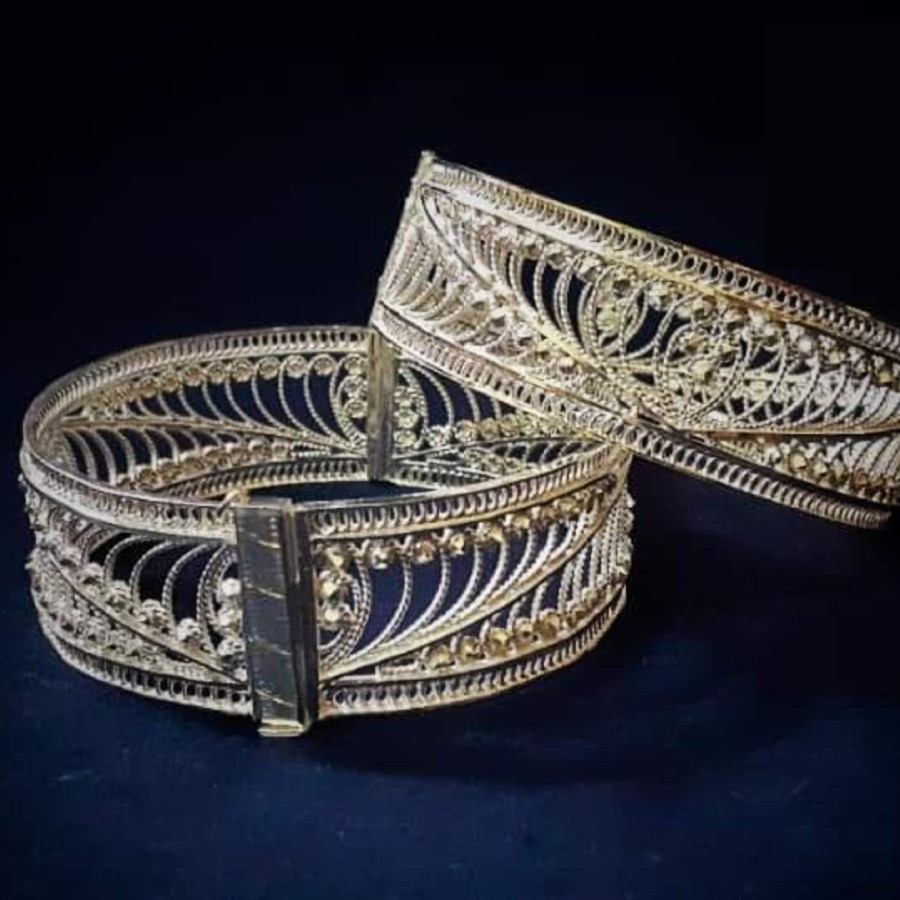
Sanjeewani Handicrafts is a third generation family enterprise that aims to support traditional artisans and preserve Kandyan silver jewelry making techniques. They offer a handcrafted local alternative to mass produced imports. Sanjeewani Handicrafts creates necklaces, bangles, earrings, and rings from recycled silver. Stones are either offcuts or sustainably sourced through the Sri Lanka Gem and Jewellery Association. A portion of all sales are used to support the education of the artisans’ children. Sanjeewani Handicrafts is a member of the National Crafts Council.
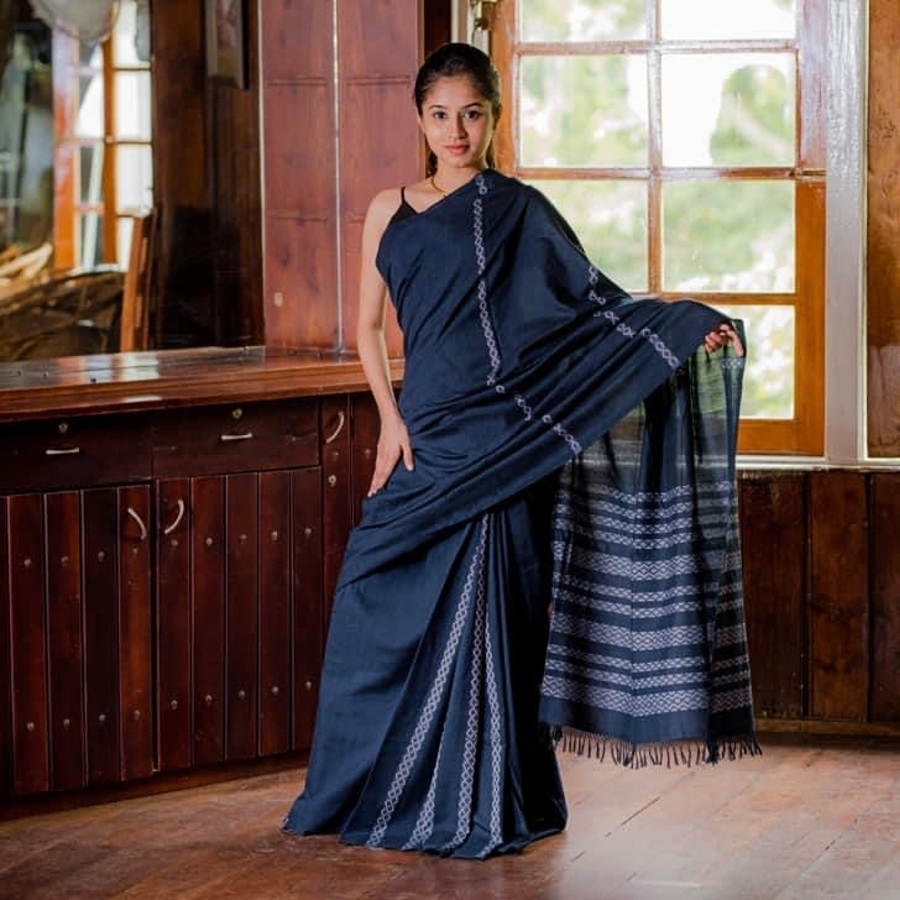
Looms Clothing produces handwoven sarees, sarongs, housewares, and accessories and creates livelihood opportunities for rural Sri Lankan women who cannot access traditional employment. They use natural fibers and are committed to quality and durability. Loom operates workshops in Pilmathalawa and Arambekade, preferentially hires single mothers and women without financial support, and helps cover health and educational expenses for workers and their children. They donate a portion of profits to Social Services Foundation of Kandy.
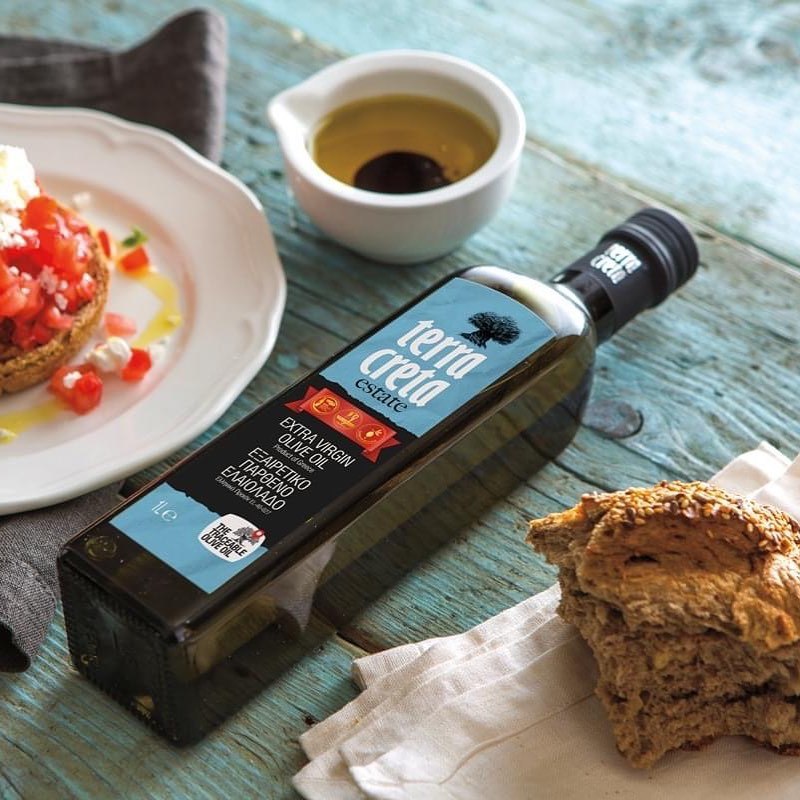
Terra Creta Sri Lanka is an authorized distributor for Terra Creta extra virgin olive oil from Greece. They aim to promote healthy living and make organic and sustainably sourced olive oil accessible and affordable for people in Sri Lanka. Terra Creta works with olive producer groups in Crete that are committed to environmentally responsible practices. They monitor and report their carbon emissions and provide online traceability from farm to shelf.
Know an initiative that’s good for people and good for the planet? The application is currently available in English, Sinhala, Tamil, Urdu, Spanish, and Japanese and started in Nepali: www.goodmarket.global/apply Want to help make it available in another language? Learn more about the community translation project here.